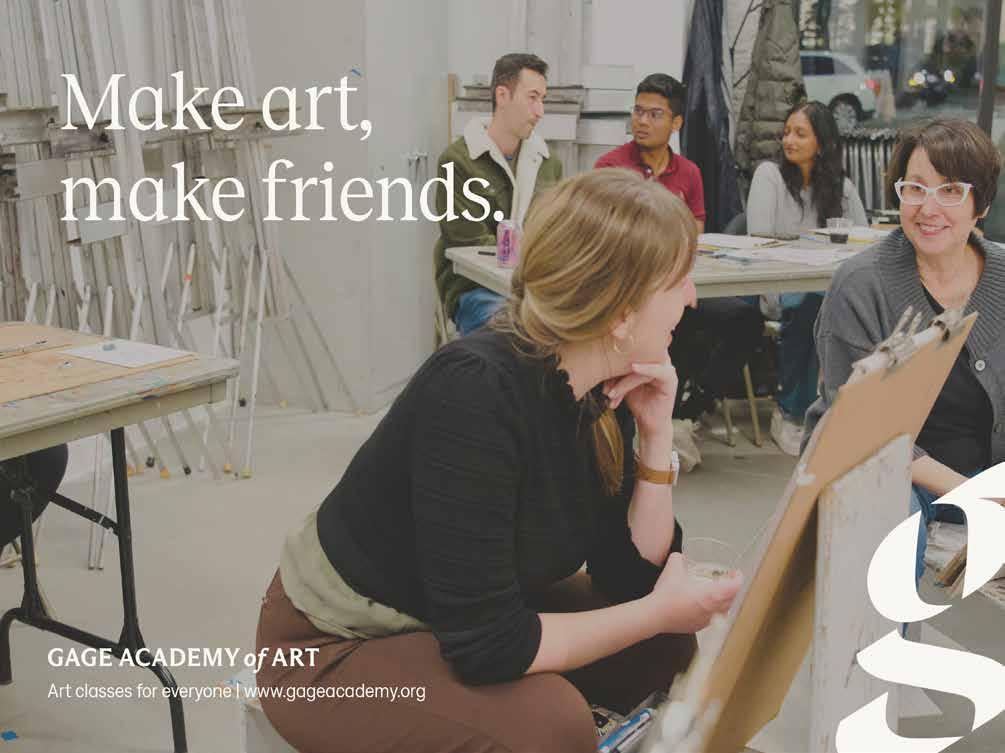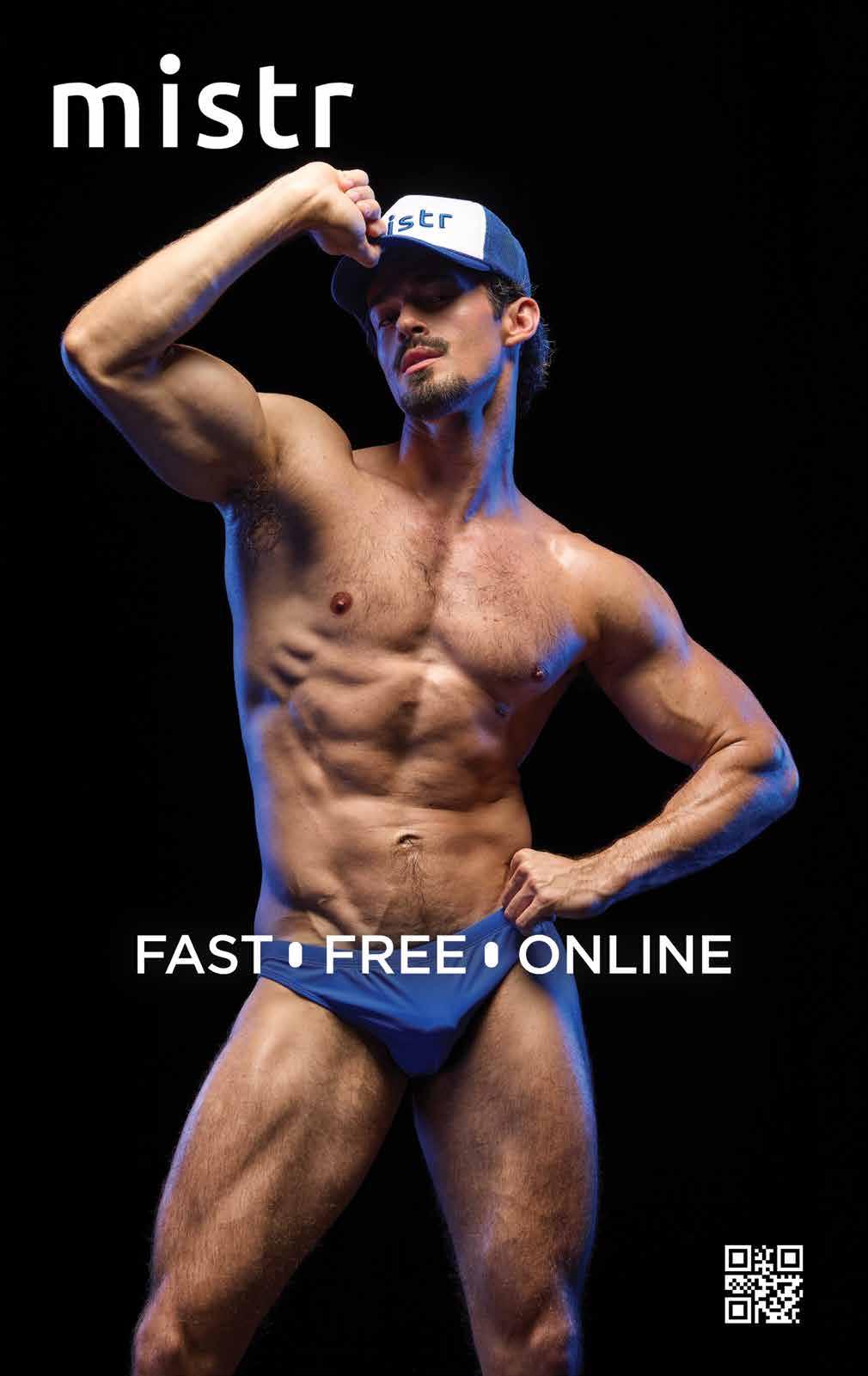

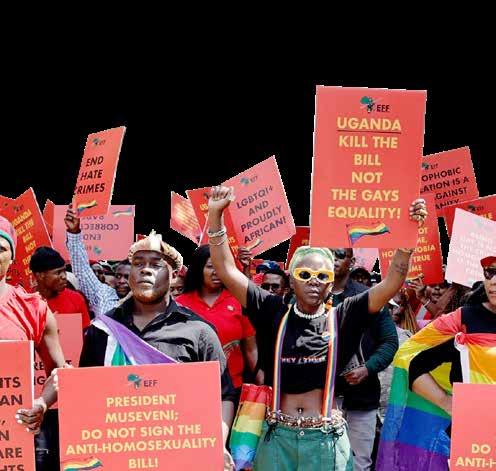


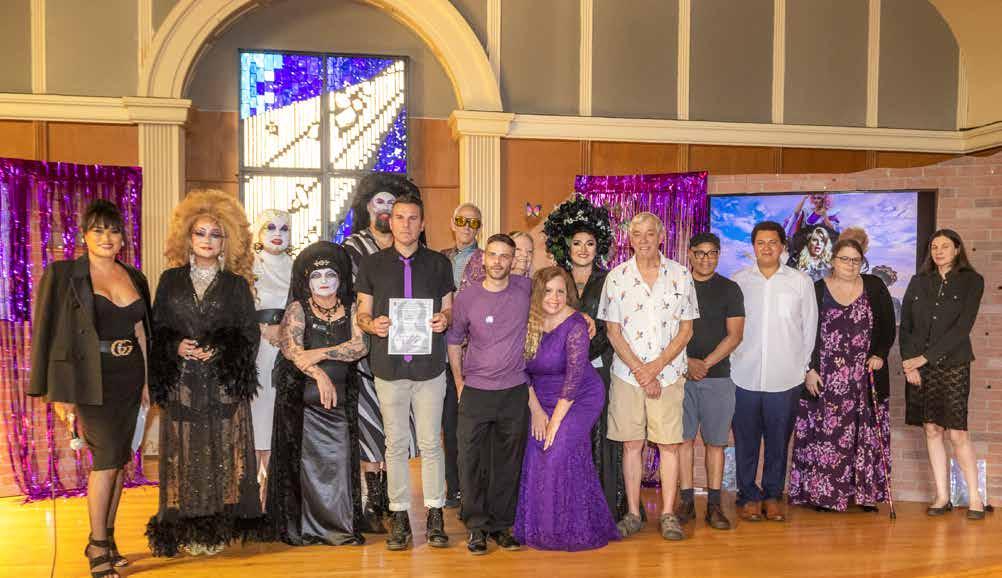
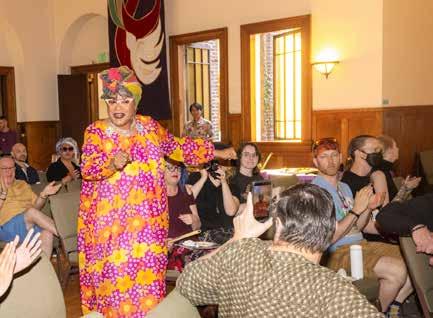
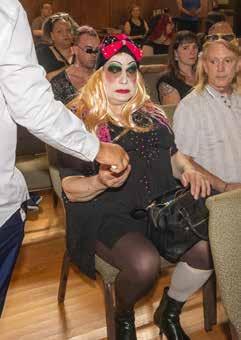
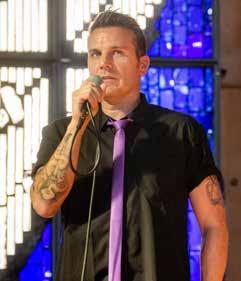
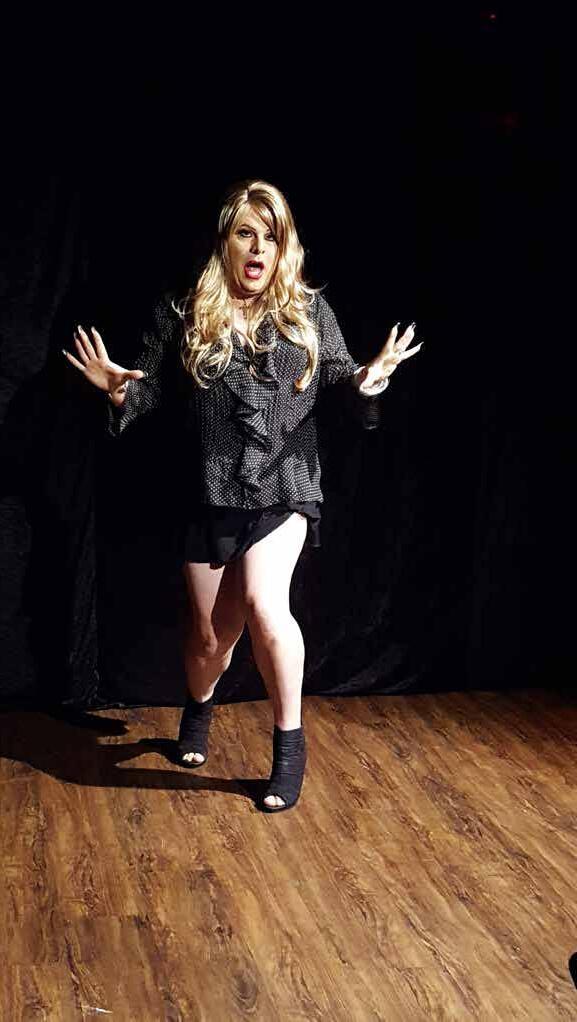
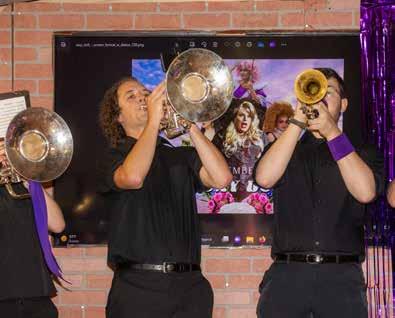
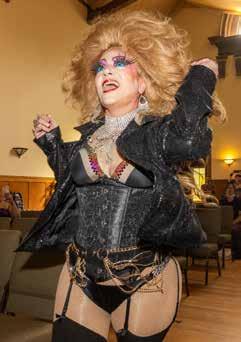
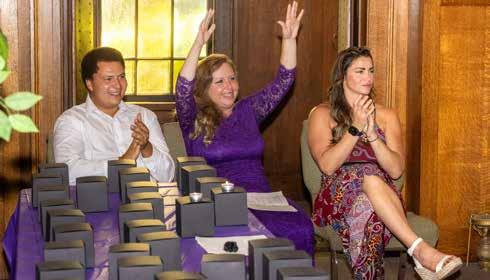
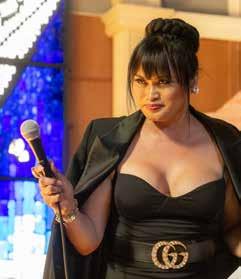

509 10th Ave E Seattle, WA 98102
sgn.org (253) 256-3151
(2023-2024)
Cragin (2020 - 2023)
Bakan (1984 - 2020)
Tully (1974 - 1984)



(206) 751-7454

BY TUCKER CHOLVIN
















509 10th Ave E Seattle, WA 98102
sgn.org (253) 256-3151
(2023-2024)
Cragin (2020 - 2023)
Bakan (1984 - 2020)
Tully (1974 - 1984)



(206) 751-7454

BY TUCKER CHOLVIN
Multihyphenate musician Brandi (from Ravensdale, WA!)
2008 Palin portrayer





Agreements between ICE and local police are eroding public safety and trust in law enforcement.
BY MAYA KHADR
This op-ed was distributed by OtherWords.org.
This spring, a 19-year old university student named Ximena Arias-Cristobal was sent to an immigrant detention center in Dalton, Georgia, for an alleged traffic violation. The traffic charges were eventually dropped, but it was too late. Authorities in Dalton had already called ICE under a federal program that turns police encounters into deportation pipelines.
With her final exams approaching and her family’s future depending on her academic success, Ximena was detained in a privately run detention center notorious for inhumane conditions and severe rights violations.
Unfortunately, her story is not an isolated incident. It’s part of a broader reality across the country as local police departments become extensions of federal immigration enforcement through what are called 287(g) agreements.
That refers to Section 287(g) of the 1996 Illegal Immigration Reform and Immigrant Responsibility Act. The program authorizes ICE to train and deputize state and local law enforcement to carry out immigration duties, effectively turning police officers into ICE agents while conducting their routine police work.
287(g) perpetuates racial profiling and other civil and human rights abuses. But
the Trump administration is leading a big push to expand the program. Since the beginning of the second Trump administration, there’s been a 566% increase in 287(g) agreements, with 765 new agreements signed nationwide as of mid-August. These agreements are generally limited to certain cities, counties, or state agencies. But states like Florida and Georgia have passed laws requiring all counties in their states to participate in 287(g). Florida Gov. Ron DeSantis even pushed universities to sign agreements that turn college campuses into targets of mass deportation. Apparently no space is safe for immigrant communities.
This program is eroding public safety and trust in law enforcement. When people fear that dialing 911 could result in their deportation or that of a loved one, crimes go unreported, victims stay silent, and witnesses refuse to cooperate with criminal investigations.
A 2018 study by the Cato Institute found no evidence that these partnerships with ICE decreased crime rates. They simply made communities less safe for everyone. Expanding 287(g) agreements normalizes racial profiling and discrimination. That led President Obama to scale back the program in 2012 after repeated instances of constitutional abuses in Maricopa County, Arizona, yet it’s been resurrected under Trump and is now growing exponentially.
Mpox hasn’t gone away — and neither has our need to care
BY SCOTT BERTANI, DIRECTOR OF ADVOCACY, NATIONAL COALITION FOR LGBTQ HEALTH SPECIAL TO THE SGN
Pride Month may be behind us, but summer events aren’t slowing down quite yet. Labor Day is right around the corner, ushering in another last-minute round of travel, connection, and reasons to stay tuned in to our bodies and our health. And this moment, nestled between big gatherings and lateseason plans, is as good a time as any to talk about mpox, not just as statistics or case counts but as something real and lived.
Mpox still matters to the wellness of the LGBTQ+ community. Talking about it — even when headlines aren’t — with friends, partners, or providers helps us stay safer and more connected to what matters in our health, just like we are for other parts of LGBTQ+ care and prevention — because real care doesn’t start with a prescription or a shot, and mpox isn’t just a medical concern. Health starts with how we talk and how we listen. Open, judgment-free conversations make it easier for people to speak up, share what they’re feeling, and work through it with their partners. That kind of care builds trust and keeps us better connected.
That’s important, because mpox is still here. Formerly known as monkeypox, it is a contagious virus that spreads through close personal contact, including sex. Though it’s not classified as a sexually transmitted infection, the patterns are clear: When bodies collide — especially in ways that involve prolonged skin-to-skin exposure and mpox is present — transmission can happen Many people report their first symptoms showing up at sites of sexual contact.
Mpox cases have primarily been seen among sexual and social networks of Gay, Bisexual, and same-gender-loving men, as
well as Transgender and Nonbinary people — especially those with uncontrolled HIV. It has also affected caregivers and women. Nearly all cases involve Clade II, the less severe strain still circulating in the US. A very few cases of Clade I — a more serious strain — were identified in late 2024 and early 2025 in people who had recently traveled outside the US; no signs of a wider spread have followed.
Because early framing of the virus relied on language and imagery that fueled stigma — particularly toward African nations and then LGBTQ+ people — the name change to “mpox” was a deliberate step to correct potential and unnecessary associations. Mpox doesn’t respect borders or identities, but our response can. And it should be rooted in truth, not stigma.
In the Puget Sound region, public health officials are keeping close tabs on activity this year — because even with just over 20 confirmed cases (to date) in King County so far, Seattle and nearby communities remain hubs for LGBTQ+ life, travel, and healthcare access. That interconnectedness, and especially during holiday weekends like Labor Day, creates both opportunities for connection and the potential for mpox to spread.
So, as people gather again, it’s worth showing up with more than holiday plans — and with the kind of care that reminds us we’re part of something bigger, a community that thrives when we look out for one another.
However, not everyone who’s been recommended to get the mpox vaccine has, and that leaves significant gaps in protection
And so are the abuses.
José Alvaro was buying baby formula when he was arrested in Lubbock, Texas, after police pulled him over for a license plate issue and called ICE. Despite having no criminal record, Alvaro was kept in immigration detention, leaving his wife and three children alone.
Despite the administration’s claim that it’s focusing on deporting “criminals,” stories like José’s and Ximena’s are no exception. In one recent study, 71.5% of the 57,000 immigrants in ICE custody had no criminal convictions.
It’s clear that these agreements are making our communities less safe. But other states are fighting back. California, Oregon, Washington, Illinois, New Jersey, and Colorado provide blueprints for resisting this program statewide. They’ve already passed laws restricting local cooperation with ICE, outlawing 287(g) in all counties.
Other state lawmakers must follow their lead and refuse to turn their communities into hunting grounds for vile immigration policies. Local officials can also do their part to reject 287(g) agreements, prioritizing community safety over deportation quotas.
We can also pressure universities and institutions to reject pressure to implement these agreements. The Immigrant Legal Resource Center (ILRC.org) provides a toolkit to mobilize against expanding ICE

authority and a map of agreements across the country. Call your representatives and local police, and talk to your friends and family. Together we can protect our immigrant neighbors — and make our communities safer for everyone.
Maya Khadr is a Henry A. Wallace Fellow at the Institute for Policy Studies.

heading into fall and the months to come. Vaccination remains one of the most effective tools we have. It not only helps lower the chance of infection but may also help reduce symptoms if someone does get mpox. The JYNNEOS vaccine is a twodose series — and that second dose matters. It’s ideally given at least 28 days after the first, but even if more time has passed, you can always go back and get it.
There are many other ways we can all [strengthen] our health this late summer and early fall by looking out for ourselves and each other. If you or a partner notices a new or unexplained rash, or just aren’t feeling quite right, it’s okay to skip a beat and reach out to a provider or someone you trust. And make sure to pay attention to symptoms like painful sores, flu-like symptoms, or pain or discomfort when going to the bathroom. If something feels off, don’t wait — reach out.
As summer winds down, keep celebrating — and stay connected to your body and your people. With lots more gatherings and holidays up ahead, it’s a great time to con-
tinue leading with care and community.
The National Coalition for LGBTQ Health represents the entire LGBTQ+ community, including clinicians, researchers, service providers, and advocates who serve individuals of every sexual orientation, gender, gender identity, race, ethnicity, and age, regardless of disability, income, education, and geography. The Coalition works to improve LGBTQ health and well-being through advocacy, medical and consumer education, communications, capacity building, and health services research. It also hosts a national Mpox Resource Center (healthlgbtq.org/mpox) and leads The Q National LGBTQ Health Training Center(healthlgbtq.org/theq), which provides cultural competency training and clinical resources to help providers deliver patient-affirming care. Learn more at www.healthlgbtq.org

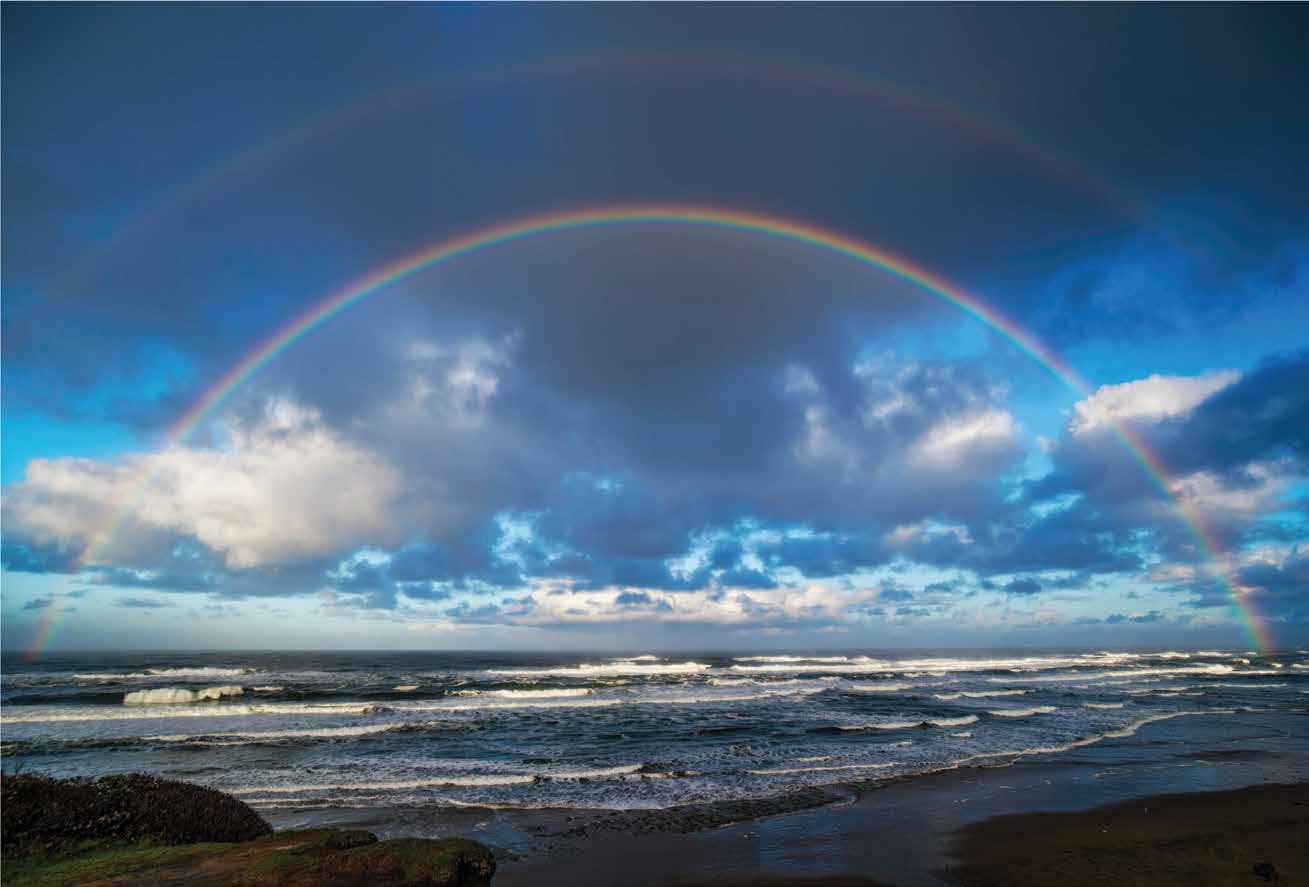


funded


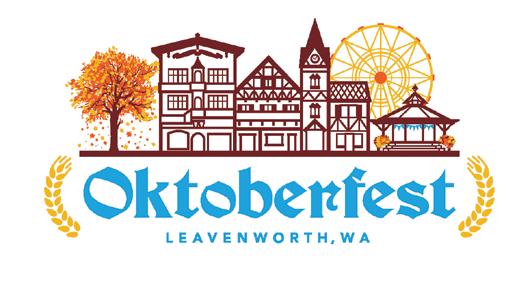
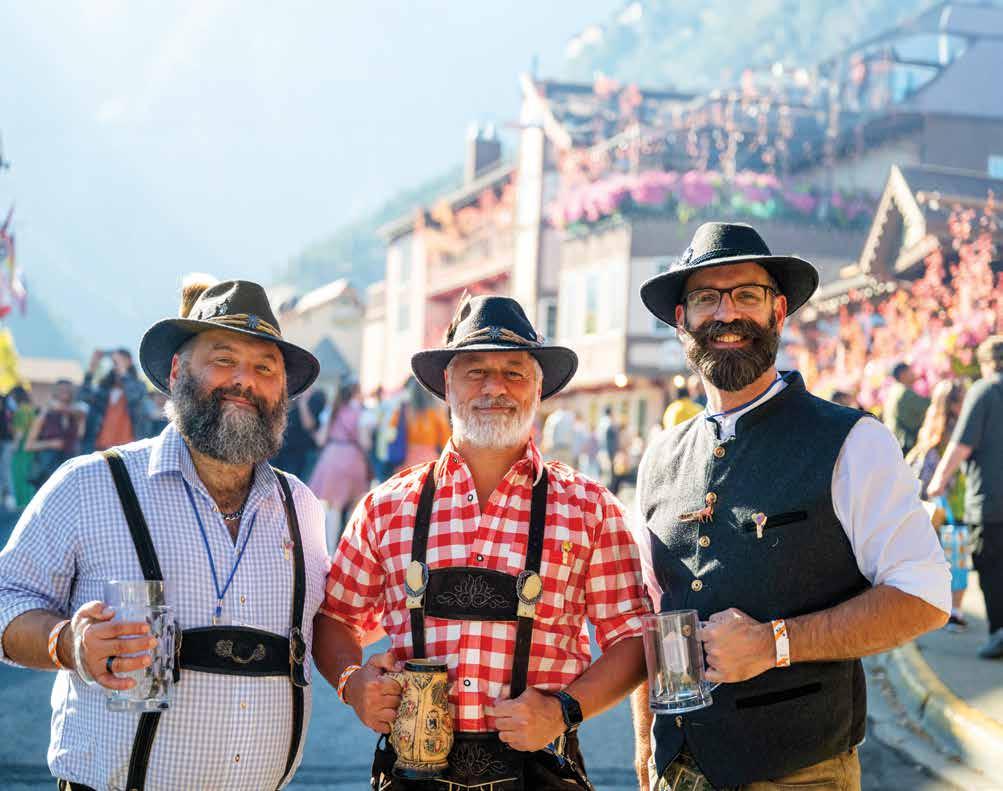
Oktoberfest tickets are selling fast. Skip the lines by purchasing online, and reserve a VIP table for an über beer hall experience. Can’t make it in October? Any time is a perfect time to visit Leavenworth. Prost!


Fundraising
Editor’s note: The contents herein are provided for informational purposes only, and shall not be construed to imply any illegality or misconduct by any organization or individual, including Watoto Child Care Ministry Inc., as well as any church organizations or venues in Washington hosting an event. All graphics are for illustrative purposes only. Any logos or individuals depicted are not intended to imply endorsement of the content presented herein.
Watoto is a religious organization based in Uganda, founded in 1984 by Gary Skinner, an evangelical missionary born in Zimbabwe and raised in Canada, and his spouse Marylin. It has faced over a decade of anti-LGBTQIA+ and human rights abuse allegations. However, an investigation of its website and social media profiles conducted by the SGN discovered that the Watoto Children’s Choir has announced that it will again be performing free concerts as a “fundraising event” across the western US, starting with nine churches and a public high school in Washington state September 11–24, traveling by bus
before moving on to stops in Oregon and then California.
In the online “Watoto Planning Packet: Better Days Tour West Coast 2025,” the organization requests its US hosts only provide “moderately priced” hotel rooms for its two drivers and team leader, asking that “10 host homes” be arranged for its child performers and other adults for lodging. The packet reports members of “Choir 120” by name: 13 adults and 11 children aged 7-13 years old, with 1-2 children assigned per one chaperone.
Photos of the choir, with the faces and names of all its members labeled, were posted on Watoto US’s Instagram account on August 5. The account also posted a video on July 14 promoting its upcoming tour, showing the choir together with a man appearing to be team leader Joel Kibalama, announcing, “We are very excited that we are coming to the USA, see you soon!”
Although the planning packet states that Watoto “does not allow the sale of tickets,” it also asks hosts to consider sending a “love offering to be given to the general fund of Watoto,” adding that “We would appreciate it if one check is issued
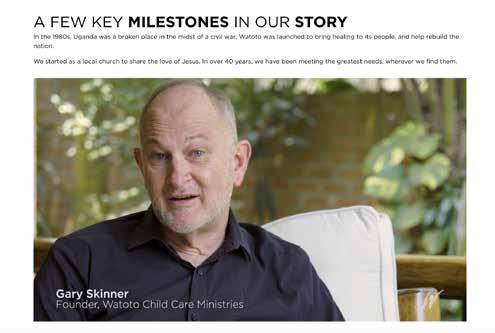
and made out to Watoto Child Care Ministry Inc,” listing its US mailing address in Tampa, Florida. The organization also asks 3-4 tables to be provided so that it can “promote Watoto’s Sponsorship Program and merchandise sales.”
On the “Guidelines for Host Homes” page of the “Watoto Planning Packet” (which requests that host organizations “please photocopy and distribute to hosts”), several instructions indicate how to accommodate the Ugandan children’s choir and adult members, including the following:
• In the “Getting to Know You” section, it states that, for the children, “this is their first time leaving Uganda.”
• In the “TV & Movies” section, it states, “The children in Watoto are not used to watching TV and videos except on rare occasions. What they do watch is generally of a Christian nature. We humbly ask that you limit TV viewing to no more than 1 hour and kindly use viewer discretion. ”
• In the “Technology Use” section, it states, “Watoto adults and children are not permitted to use host home
telephones, computers, or Wi-Fi connection. We request that you not offer these services to them.”
• The “Team List & Accommodation Information” page requests that hosts “please ensure that you place the children in a safe environment and with families that you know well.”
It also does not appear that Watoto or its choir conducts its own background checks on the host families its members stay with on tour.
Hosts
The SGN reached out to Oak Harbor Public Schools for comment about Watoto’s first stop on its tour, at Oak Harbor High School. Communications Officer Sarah Foy reported that the school district had only approved the rental of its venue, with no affiliation to Watoto or the event beyond providing the space. She said she was unaware of the anti-LGBTQ+ allegations Watoto has faced in the past.
Oak Harbor Public Schools also fulfilled the SGN ’s request to provide the “School Use Facility Application” for the event.
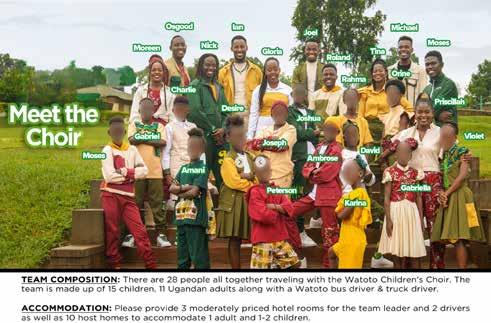

The form was filled out on March 21 and submitted by Judy Lycksell and Pastor Jeff Spencer of Oak Harbor Lutheran Church.
The SGN also contacted Oak Harbor Lutheran Church, which confirmed that it was helping Watoto organize the event, setting up host families from its congregation, and that it had done so several times previously. The church stated that it has a “Watoto committee” that manages the visits, and that volunteers from its congregation host Watoto children and their adult chaperones in their homes.
These host home volunteers are reported to undergo child protection policy training and a background check run by the committee; it was unclear whether the background check involved reviewing the immigration status of the hosts.
The church also reported having an extensive history with Watoto. When asked if the church had sent “love offerings” (donations) to Watoto, it reported holding a yearly garage sale fundraiser for its programs, as well as sending its members to Uganda to work with Watoto in 2008 and 2010 at one of its clinic facilities. The church declined to provide comment on allegations of Watoto’s members supporting anti-LGBTQIA+ legislation.
Oak Harbor Lutheran Church is a member of the broader Evangelical Lutheran Church of America (ELCA) and its Northwest Washington Synod. ELCA Assistant to the Bishop Andy Yee did not respond to the SGN ’s request for comment, and Bishop Shelley Bryan Wee was reportedly on vacation.
The SGN additionally reached out to all the other Washington host churches for comment. None had responded to the requests as of press time.
Watoto also did not respond to the SGN’s request for comment.
The SGN was able to obtain the IRS 990 “Return of Organization Exempt from Income Tax” forms filed under “Watoto Child Care Ministry Inc,” a 501(c)(3) nonprofit corporation, for the tax years 2022–24 tax years. The nonprofit reported a total revenue of $7.09 million in 2022, with $7.06 million coming from contributions and grants; $6.8 million total revenue with 5.2 million in contributions and grants for 2023; and $7.5 million in total revenue, with $7.3 million in contributions and grants, for 2024.
All three IRS 990 forms list the nonprofit’s “Sponsor a Life” program as its biggest expense: $4 million spent in 2022, $5.8 million in 2023, and $4.1 million in 2024. In these forms, it describes the program as a “sponsorship of babies, children and vulnerable women” that provides a “holistic model,” offering sponsors “physical care, medical intervention including HIV/AIDS treatment, education both formal and technical, trauma counseling, and spiritual discipleship.”
Only the nonprofit’s CEO, CFO, and director of development were listed on the tax forms as having received income all three years, in the range of $80,000–130,000.
Watoto founder Gary Skinner is listed as “past president” in the 2022 form, and as a “director” in the 2023 and 2024 forms; he does not appear to have received funds during the 2022–24 time period. President Julius Rwotlonyo, also listed on all three forms, did not appear to receive funds either.
According to the Washington Department of Labor & Industries, all employers “hiring an actor or performer under the age of 18 to work in film, video, audio, or theatrical productions” are required to file

and be granted a “Theatrical Minor Work Variance.” Because these Watoto children’s choir performances are “free events” and the members are not paid wages for their work, the nonprofit does not have to follow this regulation.
The SGN did put in a request with the Washington Department of Revenue, which confirmed that Watoto has not had a valid Washington business license since February 2023.
Previous controversies
The Watoto Children’s Choir last received Washington media attention during their 2014 tour. KING-5 reported on the organization’s ties to anti-LGBTQIA+ legislation in Uganda at the time.
In May 2025, the Gay City News reported on Watoto’s visit to a church in Brooklyn also drawing attention to its ties to Uganda’s “Kill the Gays” legislation, including two meetings the church
hosted for the Family Life Network’s antiLGBTQ+ conference in 2009.
The Watoto website also announced that one of its choirs will tour Australia during the same timeframe as the US West Coast tour. Multiple news sources in that country have also investigated Watoto, with the Sydney Morning Herald and Daily Mail Australia writing about MP Stuart Robert’s ties to Skinner and his support of antiLGBTQ+ public figures in Uganda back in 2016.
The Times of India reported in 2016 about a Ugandan man, John Jogga Katamba, who claimed to have been forced by Watoto to donate his kidney at a hospital in India without his consent. The SGN interviewed an anonymous source who claimed to have had contact with the victim, after investigating their own dealings with Watoto stealing land from a family member in Uganda. The source provided to the SGN legal documents filed by Katamba
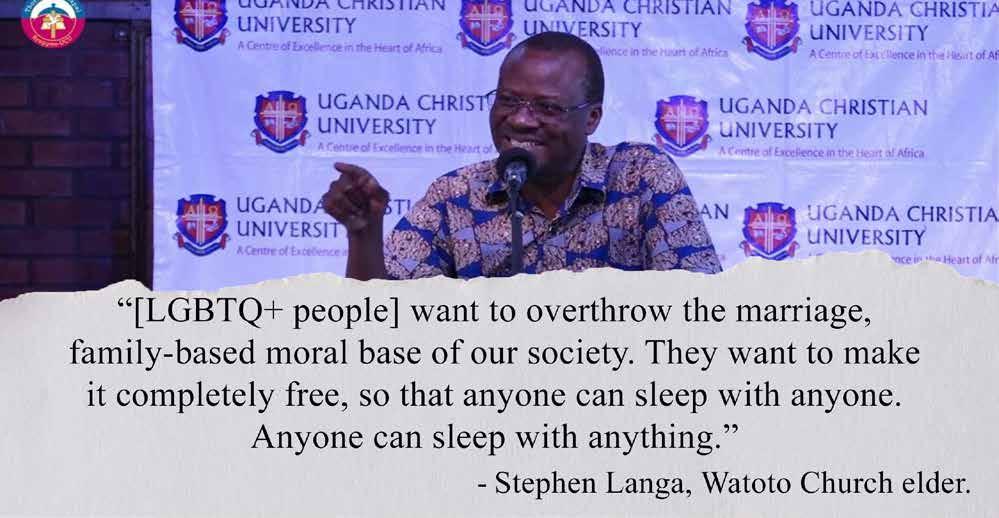
against Watoto in both India and Uganda, alleging also that Watoto used US-raised funds to conduct the kidney transplant. The source stated that they attended Watoto’s children’s choir shows in the US, and expressed concern for the safety of its children on tour.
Stephen Langa, leader of the Family Life Network and Watoto Church elder, has been outspoken against LGBTQIA+ rights in Uganda over the last decade. He was a part of the 2014 lawsuit in defense of the first “Kill the Gays” law, which was eventually overturned.
Mother Jones in 2014 covered Langa’s connection to the anti-LGBTQ+ movement in Uganda and Scott Lively, a US evangelical crusader and author of The Pink Swastika: Homosexuality in the Nazi Party. Videos of both Lively and Langa giving speeches at a conference hosted by the Family Life Network in Uganda were posted on Mother Jones’ YouTube channel alongside its article. Langa in his speech claimed that “[LGBTQ+ people] want to overthrow the marriage, family-based moral base of our society. They want to make it completely free, so that anyone can sleep with anyone, anyone can sleep with anything.”
Watoto’s X account shared a talk Langa did about the immorality of homosexuality in 2017. In a 2021 livestream of a church sermon by President Rwotlonyo on Watoto’s Facebook account, Langa leads a prayer asking God to guide Uganda through its “dark political times.” In February 2022, PowerFMUganda made a promotional post on Instagram with Langa as a guest to “speak on homosexuality and sexual perversion.”
In support of the 2023 “Anti-Homosexuality” bill, Langa led a “One Million Man March.” He also stood in defense of the legislation once it was challenged in court after its passage.
Langa has continued to play a role in the Watoto Church since the law was passed. On August 18, 2024, Family Life Network and Watoto Church held a joint event in Kampala celebrating Langa’s 70th birthday, as well as his 40th wedding anniversary. In a YouTube livestream of the event, President Rwotlonyo said during his introduction of Langa, “Especially at a time when family is under attack, today is a big testimony that family, God’s way, is the best way as we celebrate ‘Uncle Steven,’ as we call him, and ‘Auntie Beatrice.’” Skinner and his wife reportedly stepped down from the Watoto organization in Uganda in February 2023, just a few months before the country’s current “AntiHomosexuality” law was passed. He has also faced numerous accusations of antiLGBTQ+ sentiments. In 2013, he was called “the most homophobic man in the world” by Frank Mugisha, a recipient of the Robert F. Kennedy Human Rights Award and executive director of Sexual Minorities Uganda (SMUG). Mugisha and SMUG also led both the 2014 and 2023 legal challenges to the “Kill the Gays” laws
in Uganda. SMUG and Mugisha did not respond to the SGN ’s multiple requests for comment.
An expert’s perspective
Melanie Nathan is a Queer, South African–born human rights lawyer with over two decades of on-the-ground experience advocating for the rights of LGBTQIA+ Africans. She is also executive director of African Human Rights Coalition, a nonprofit providing services for refugees fleeing LGBTQ+-based violence in their home countries.
She recalled beginning her work in Uganda in 2009, saying that “the work started heating up around 2011 and then very much so around 2013–14, when the first Anti-Homosexuality Act was passed. President Museveni attested to it, [but] later that year, the Ugandan courts invalidated the law based on a technicality, in that there was no quorum in Parliament at the time of its passage, so they rendered the bill invalid. This context is important, because almost 10 years went by, and in 2023, a new Anti-Homosexuality Act, which in some respects was even more virulent, came into enactment, and it was attested to by President Museveni.”
Right before the 2023 law was passed, President Museveni spoke at an event hosted by the US evangelical organization Family Watch International — designated a “hate group” by the Southern Poverty Law Center — saying, “Africa should provide the lead to save the world from this degeneration and decadence, which is really very dangerous for humanity. If people of opposite sex [sic] stop appreciating one another, then how will the human race be propagated?”
The law, which is still currently in effect in Uganda, severely punishes its citizens for acts of what it deems “aggravated homosexuality.” The Human Rights Awareness and Promotion Forum (HRAPF), a Uganda-based nonprofit, “has documented 55 arrests under the law, three death penalty cases forwarded to the Director of Public Prosecutions, eight forced anal examination cases, 254 evictions of persons accused to be or associated with LGBTI people, and 202 other cases of actual or threatened violence,” during the first months of the new law, as reported by Amnesty International
Nathan argues there are several risks of Watoto bringing its children’s choir into the US this September. Since Trump has taken office, foreign tourists have been getting detained and deported at US ports of entry. Speaking on this new heightened risk, she said, “We start from step one, which is actually entering the country. That’s their first problem in this current climate. They’re doing it [fundraising], risking these children, risking detention, and they’re risking deportation to places unknown, because the system is not working very well right now.”
Another risk is there have been numerous media reports of ICE detaining minors
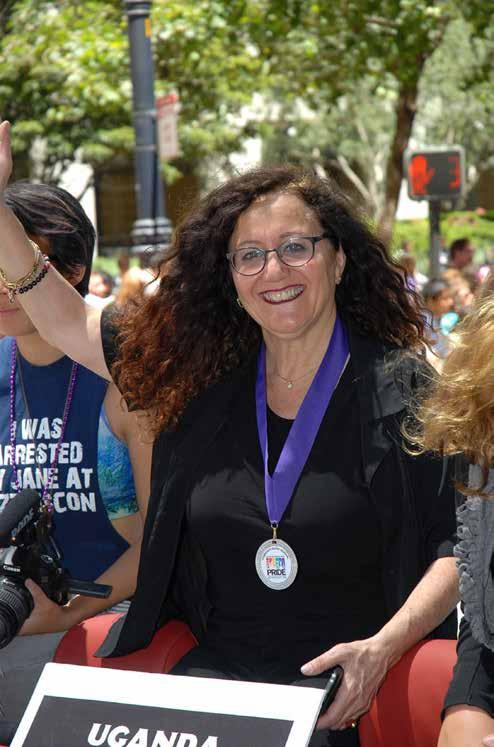
and separating them from their families. In Yakima, one stop on Watoto’s upcoming tour, there have been reports of ICE using the city's airfield for its flights
Speaking to the precariousness of this situation, Nathan asked, “Have they [Watoto] checked the immigration status of the parties, in whose homes these kids are staying? What if ICE shows up at one of these homes while there’s this little African kid there? Think about it for a second. This is not a climate where you can do anything like this anymore. We’re living in very dangerous times. You just don’t bring children and dump then in homes that you don’t have the last A-to-Z knowledge about.”
But the scope of Trump’s policies have deeper impacts than just the safety of Watoto’s children in the US. Speaking on how her organization’s work is being negatively impacted by Trump’s austerity policies, she stated, “When President Trump took office, our work — and the lives of those
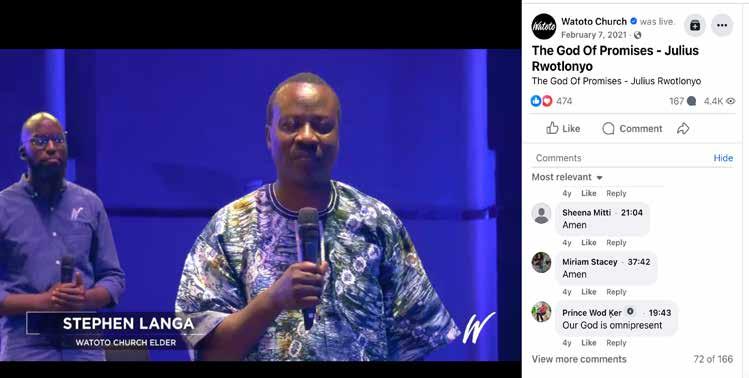
we serve — were severely disrupted by the loss of USAID funding, key grants, and the US Refugee Program in several countries. Overnight, countless people who depended on these lifelines were left without critical services, accommodation, or protection. This sudden collapse triggered a devastating domino effect, even causing some who lost shelters to be arrested under false accusations of breaking immigration laws, and forcibly … deported back to Uganda, violating the 1951 Refugee Convention, effectively returned directly into the danger they had fled.”
Finally, Nathan pointed out that “it is an insidious societal oxymoron when one serves up useful, kind charity and violent human rights abuses on the same dinner plate. Gary Skinner used this tactic when founding and funding a ministry that supports Watoto Children’s orphanage. He became a hero for taking on the support of vulnerable orphans, attracting much funding, while using the very same platform and funds to directly participate in what has led to one of the greatest human rights violations of all time on Africa’s continent, Uganda’s ‘Kill the Gays Bill,’ which has led to immeasurable violence and forced displacement, dispersing Uganda’s LGBTQIA+ community across the world to seek protection and the right to live in freedom and safety.”
This is second in a series entitled “Community Viewpoints,” a space for vibrant conversations in Seattle’s LGBTQIA+ community — exploring how we see ourselves, how the world sees us, and the impact we make together.







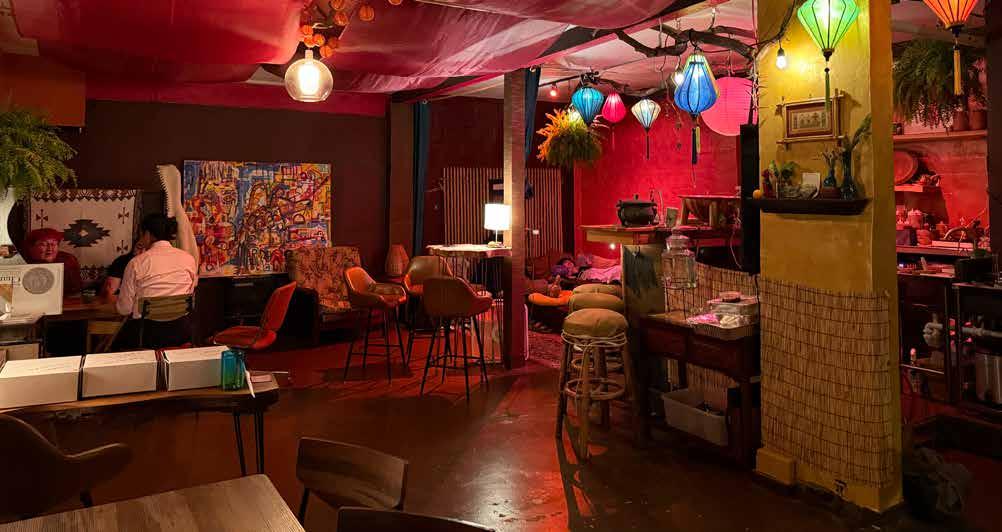
BY MADISON JONES SGN MANAGING EDITOR
Along Rainier Avenue, on the strip running from Little Saigon down to Renton, a collection of Seattle’s best spots are interlaced among the big-box chain stores. Near the intersection with Genesee Street in Columbia City, hidden behind an otherwise unassuming exterior, sits a budding latenight community oasis: Cedar Tea House.
The business began in January as the joint idea of a small group of friends, among which was Hector Ayala, a mildmannered, laid-back kind of guy with a bun, a goatee, and the infectious smile of a person who loves what they do.
“My friends and I were already staying up late like this anyway, so [we thought we] might as well create a space for it,” he told the SGN while gleefully whipping up a nonalcoholic cocktail behind the bar.
The group launched the business in June, and reports having received very positive feedback so far.
The dimly lit space contains cozy nooks and plentiful seating, perfect for intimate groups of friends to chat. On this night, a local Latin bakery had even donated a bunch of its pastries, laid out for free on a table for patrons.
BY NATALIE KAHN
On August 17, Lesbians across Seattle unbuttoned their vests, hooked on their comically large carabiners, and headed to Cal Anderson Park for the first-ever “Performative Lesbian Contest.”
More than 20 competitors vied to prove they were the most Lesbian of all. To win over an audience of around 200 and a $20 prize, one showed off their basketball skills; another, a tattoo of their ex’s name. They pulled vinyls of artists such as Chappell Roan and Boygenius and books such as Stone Butch Blues from their tote bags. One trimmed the nails of an audience volunteer with clippers attached to their carabiner.
All of these displays of stereotypical lesbian-ness were met with cheers from the crowd, but no one could outdo the two winners, Ryan Jansen and Clara McFadden.
The pair, who met in line at the event, had a steamy makeout session in one of the first rounds.
“We figured if we made out, we would get to the final. We dapped each other up and decided if it came to that, we would pull out all the stops,” Jansen said after winning. They secured the win in the final round, when the two pulled up their tops and flashed the crowd.
Jansen heard about the contest through word of mouth and TikTok. Alise Garcia,
who planned and hosted the informal competition, posted on her TikTok that she was organizing the contest after seeing “the straights do it,” referring to the “performative male” competition earlier this month (as covered in the SGN ).
“The whole performative male thing is men feminizing themselves and taking advantage of Gay culture without actually being Gay,” Garcia told SGN. “So I thought it would be awesome to host a Lesbian version, because we are the blueprint of what a performative male looks like in this generation.”
Garcia describes being a performative Lesbian as aligning with stereotypes about Lesbians, and said that yes, she fits some of those herself.
Her posts about the contest quickly gained traction, but she didn’t expect so many people to show up. “I was shocked to say the least…,” she said. “I cannot believe how well everyone did, and the crowd was amazing. The entire thing was perfect.”
Garcia grew up in Seattle and has been organizing Queer events here since moving back from New York City in July. She was active in the Lesbian community there, and feels there aren’t as many opportunities in Seattle, especially ones that don’t revolve around drinking. So Garcia hosts picnics,
Ayala explained the group’s philosophy behind opening the Cedar Tea House: “In Seattle, there [aren’t] really any spaces that are open late that don’t revolve around alcohol.” He said that in other cultures, like in Asia, people tend to prioritize communal meeting spaces like these. Emphasizing the difficulty finding affordable options in the city, especially for young people, he added, “It’s important that we have more third-spaces.”
Of the beverage options on the menu, standouts included the Four Seasons of Spring Oolong, which was fragrant and
earthy, with just a slight astringent aftertaste, keeping you awake for more. The mocktails were herbal, bright but balanced, and immensely refreshing.
In the relaxed atmosphere Ayala and his friends have been able to cultivate, it was easy to let time fly by. Our group stayed for over four hours, chatting and sipping, until the teahouse closed at 2 a.m. Seattle is notorious for businesses closing early, compared to other US metro areas. But Cedar Tea House stands apart as a new option for late-night gatherings and those looking a more sober and calm experience.
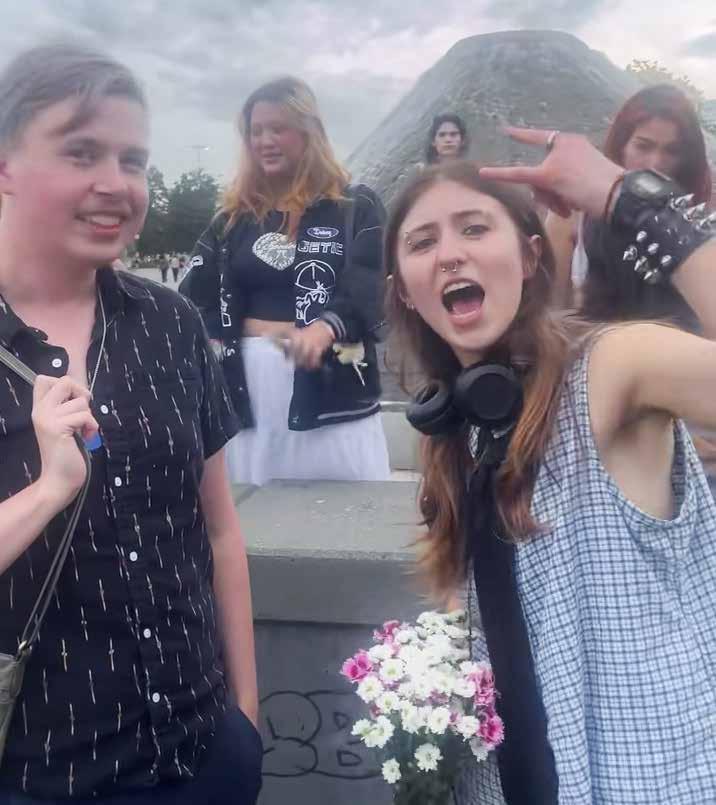
craft nights, and a weekly Lesbian running club. “I do think Seattle has a beautiful Lesbian scene. We just lack places to gather and meet,” Garcia said, noting that the Wildrose is the only Lesbian bar in the city.
Though, based on the cheers every time someone announced that they were single, friends may not have been the only thing people were seeking.
BY MICHAEL K. LAVERS
Reprinted with permission from the Washington Blade
Advocacy groups say the State Department’s 2024 human rights report that “erased” LGBTQ people will jeopardize the cases of those who are seeking asylum in the US.
Immigration Equality notes the report “serves as key evidence for asylum seekers, attorneys, judges, and advocates who rely on them to assess human rights conditions and protection claims worldwide.”
The 2024 report the State Department released on Aug. 12 did not include LGBTQ-specific references. Immigration Equality Director of Law and Policy Bridget Crawford in a statement said that country-specific reports within the larger report “should be accurate, fact-based, and reflect the lived reality of LGBTQ people — not ignore and actively hide it.”
“When adjudicators see less information in these reports than in prior years, they may wrongly assume conditions have improved,” said Crawford. “In truth, the absence of reporting is a purely political move, not based in fact or reality.”
Organization for Refuge, Asylum and Migration Executive Director Steve Roth in a statement condemned the Trump-
Vance administration’s “deliberate erasure of LGBTIQ communities from the 2024 human rights report — an unprecedented move that violates international standards. This is a targeted and malicious act that will directly endanger lives.”
Roth, like Immigration Equality, noted that courts “around the world rely on these reports to evaluate asylum claims.”
“Stripping out documentation of LGBTIQ persecution removes a vital tool in assessing claims for protection, jeopardizing the ability of LGBTIQ asylum seekers to access safety,” said Roth.
Congress requires the State Department to release a human rights report each year. The State Department usually releases them in the spring, as opposed to August.
Then-State Department spokesperson
Tammy Bruce, who President Donald Trump has nominated to become deputy representative at the UN, during her last press briefing on Aug. 12 defended the delay and the report itself.
“We weren’t going to release something compiled and written by the previous administration,” said Bruce. “It needed to change based on the point of view and the vision of the Trump administration, and so those changes were made.”
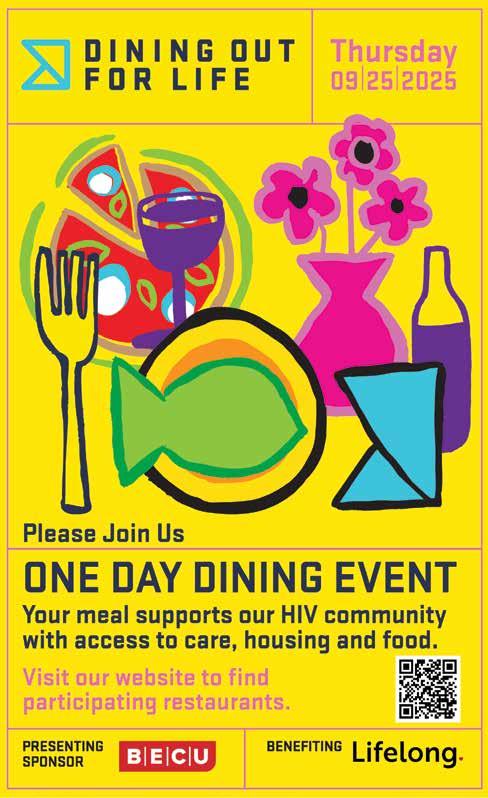

Asylum courts “will have less credible data to rely on”
Jessica Stern, the former special US envoy for the promotion of LGBTQ and Intersex rights under the Biden-Harris administration, cofounded the Alliance for Diplomacy and Justice with several other former State Department officials.
The Alliance for Diplomacy and Justice in response to the report said the US has “betrayed the trust of human rights defenders who risked their safety to share the truth” and added that “some [of them] are now less safe. Asylum courts in the US and globally will have less credible data to rely on.”
Human Rights Watch echoed the Alliance for Diplomacy and Justice.
“The human rights report has been used in US asylum court cases to show that an asylum seeker could not be returned to a country where similarly situated people were being persecuted,” said Human Rights Watch in response to the 2024 report. “That essential resource for keeping people safe is not only no longer reliable or helpful but in some cases could put people at risk by denying abuses in places where the United States or other countries intend to deport asylum seekers and immigrants.”

BY CALVIN JAY EMERSON
SGN ASSOCIATE EDITOR
We’re now going into the last stretch of the WNBA’s regular season. This makes it a good moment to check in with the Seattle Storm, which has undergone some dramatic changes over the last few years. The team’s past all-stars have now all left for greener pastures, while exciting, emerging talent has taken their place. Have these changes paid off? By answering a few lingering questions from the preseason, we can find out.
How has the offense changed without Jewell Loyd?
It’s unfortunate that Loyd’s final season with the Storm will likely be remembered for her beefing with the coaching staff. But it’s hard to ignore the messy reality that slowly took attention away from her play. Still, if you isolate her athletic performance from the noise, then you’d find a player who gave everything she could.
Take her 2023 season, for example. She scored nearly 25 points per game. She landed over a hundred three-pointers. She scored 939 points across 40 games, an insane tally that broke the WNBA’s singleseason scoring record.
What goes unspoken in all these stats, however, is how single-handedly she led the team’s offense. There was a 10-point difference in points per game between her and her next best teammate, Ezi Magbegor. Almost everyone else on the team scored in the single digits. That year was the Jewell Loyd show, first and foremost.

The 2025 version of the Storm, led by the power duo of Skyler Diggins and Nneka Ogwumike, is far more of a team effort. Everyone has enough talent and support to potentially shine on any given night. Magbegor might shut down an opposing superstar. Erica Wheeler might have a hot streak and start making buckets from afar. They’ve replaced a meat cleaver with a Swiss army knife — not as singularly powerful as before but far more unpredictable and surprising.
What has Dominique Malonga’s rookie year looked like?
Malonga’s potential star power, as a 6’ 6” French phenomenon who can make a whole arena erupt with her dunks, is what made critics and onlookers hype her from afar. Hype, however, doesn’t matter when your team is chock-full of experienced leaders, scorers, and playmakers, and you’re just a 19-year-old rookie. It’s a situation where you really have to earn your place.
For Malonga, this comes with upsides and downsides. The downside is that she’s begun her games exclusively from the bench, and it’s unclear if or when she’ll join the starting lineup. The upside is that she’s surrounded by opportunities to learn valuable lessons from veteran players.
“She’s very engaged,” said Diggins when asked about Malonga. “That’s where you see her growth: it’s in her engagement to the process. Not having the ego about it. Just coming in, wanting to learn, asking the right questions, and then learning from those answers.”
Through learning, she’s picked up the team’s signature move: the inside pass. Storm players are experts at quickly maneuvering the ball into the paint, and, like magic, there’s always someone beneath the hoop who can dunk it in.
Malonga became that someone in a July matchup against the New York Liberty. In the third quarter, she effortlessly caught inside passes over and over, slowly killing any momentum that the Liberty had built before. When she returned to the bench, the game had turned into a blowout, with the Storm holding onto a 15-point lead.
In that moment, Dominique Malonga showed the WNBA what she’s capable of. As she continues to grow comfortable with the Storm, she’ll carry on what appears to be the team’s winning strategy: chipping away at an opponent’s defenses, two points at a time.

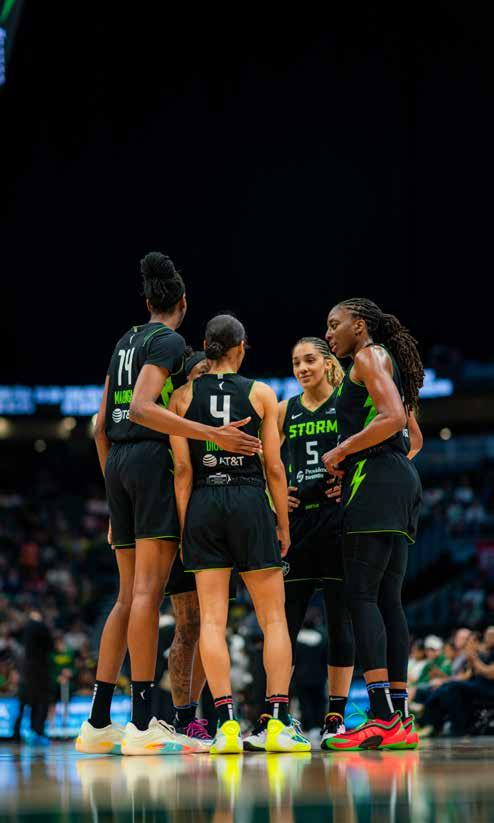
Will the team make the postseason, and if so, who will they play against?
Possibly, but the outlook’s not great. The team was previously steady in the fourth seed, until they caught an awful case of bad luck while facing the Los Angeles Sparks, Minnesota Lynx, and Indiana Fever back home. They lost all three games, each time with a lead of five points or less. By the time they regained their footing in midAugust by barely surviving the Atlanta Dream, their losing streak sent them plummeting to the eighth seed, a dangerous spot to be in. When you’re eighth, it only takes one better team in the standings to kill your playoff dreams.
With the aggressive energy of Kelsey Plum and a reenergized roster, LA is gun-
ning for Seattle’s throat. Even if they fend off the Californians, whoever’s in the eighth seed will have to face off against the Lynx, who have dominated the league with only five losses to their name. Whoever plays them will face an uphill battle, so it might be in the Storm’s best interest to play hot potato: claim the seventh seed if possible and pass off the responsibility of besting Minnesota to another team.
By the time you read this, the Storm will only have four games left to play in the regular season, and each will be crucial in turning the tides of their misfortune. If they can’t change quickly, they’ll be shut out of the playoffs, something that seemed impossible just a month ago.



BY CALVIN JAY EMERSON
SGN ASSOCIATE EDITOR
The Sounders despise the Timbers. The Thorns can’t stand the Reign. The Trail Blazers and the Supersonics used to be bitter enemies, but they stopped playing against each other in 2008. Feuding with your Portland equivalent comes naturally to any Seattle sports team, but the two biggest cities in the Northwest haven’t faced off on the basketball court in decades.
That’ll change soon. Set to make their ingame debut in 2026, the Portland Fire were officially introduced to the world on July 15. They’ll be playing in the Moda Center, right alongside the Trail Blazers.
The Fire’s very existence reflects a sudden expansion boom in the WNBA. The league plans to create six new teams over the course of five years, starting with San Francisco in 2025. Portland and Toronto are joining in 2026, Cleveland in 2028, Detroit in 2029, and Philadelphia in 2030.
Growth like this is simply unheard of among other professional leagues. The NBA, for example, had a rapid expansion process in the late 1980s, which brought us the Heat, Magic, and Timberwolves but has slowed down ever since. Because every expansion cuts into how much existing teams receive from media rights, which generate $6.9 billion every year, team owners have been more hesitant to bring new cities into the fold. As the WNBA becomes a larger business with more established roots, we’ll likely see a similar slowdown occur as well.
BY CALVIN JAY EMERSON SGN ASSOCIATE EDITOR
Sue Bird, the retired point guard of the Seattle Storm and a four-time WNBA champion, has become the first-ever LGBTQIA+ athlete to be honored with a statue.
From Babe Ruth to Kobe Bryant, stadiums have spent decades using statues to honor the retired legends who played under their roofs. However, they’ve mostly given to male athletes, and exclusively straight ones, until that changed on Sunday, August 17.
In front of Climate Pledge Arena, tributes were shared by Councilmember Girmay Zahilay and former teammates Lauren Jackson and Swin Cash before a black cloth was dramatically lifted, unveiling a bronze Bird in the midst of a layup. After the big reveal, it was time for Sue Bird to speak about her legacy on her own terms.
“Twenty-three years ago, I stepped off a plane in Seattle as a 21-year-old kid from New York, fresh out of college, wondering what my life was gonna be like…,” said Bird. “Honestly, that 21- year-old would never have believed this moment was possible, and that Seattle would become everything she didn’t know she needed.”
Bird’s loyalty to the Storm, never traded nor signed elsewhere in the WNBA across her 20-year career, is as undoubtable as her impact on the team itself. She was everything you could ask for in a point guard, an anchoring force that her teammates could rely on for passes and easy points. The all-time leader in assists, every night she could consistently bring ten points and five assists to the table. In the league’s current era of explosive plays and half-court shots, that sounds quaint. For a WNBA team in the 2000s still trying to find its footing, it was revolutionary.
Her bedrock consistency allowed her teammates, all-stars like Lauren Jackson and Brianna Stewart, to become the best versions of themselves. Together, with Bird as their guiding compass, the Seattle Storm would become four-time champions across two decades. Only two other players, across all of professional basketball, have brought that many trophies to the town they were originally drafted to.
Bird always did what she could to serve her communities, even off the court. She was also the vice president of the players union. When Republican Sen. Kelly Loeffler, then owner of the Atlanta Dream, criticized the WNBA for supporting Black Lives Matter during the 2020 season, it was Bird’s idea for players to wear “Vote Warnock” shirts before games. Loeffler would eventually sell her ownership of the Dream, whereas the WNBA continues to be progressive and inclusive, an attitude set by Bird and her peers.
Bird’s monument is just the latest in a chain of recent tributes to hometown heroes. Bird’s wife, soccer superstar Megan Rapinoe, had her number retired in 2023. Lenny Wilkins, the SuperSonics coach who inspired the team to a championship in 1979, had his statue unveiled last June. Wilkins’ and Bird’s bronze doppelgängers are right next to each other, side-by-side facing the arena’s southern entrance.
At the ballpark, meanwhile, Mariners legend Ichiro Suzuki was celebrated in early August, culminating in the announcement of his own statue, to debut in 2026. Next year, Suzuki will share his retired number with Randy Johnson, the Mariners’ Hall of Fame pitcher, who also wore 51.
For now, however, the WNBA is acting quickly, partially because it’s making up for lost time. The Portland Fire actually existed for a brief two years, from 2000 to 2002, but folded due to underperforming financially. It was a casualty in a wider, national backslide for the league, which shrunk from 16 teams to 12.
Twenty-three years later, the team finds itself resurrected in a completely different landscape. Defunct teams from the WNBA’s past can not only be reborn but can go on to unexpectedly thrive during their first season. That’s what we’re currently witnessing with the Golden State Valkyries, who, through an eclectic mix of international players, have won the majority of their sold-out home games. They’ve repeatedly defeated our Seattle Storm, once with an embarrassing, 20-point blowout.
Thanks to Golden State, a precedent has been set. Portland’s newest team won’t be expected to be pushovers in their first season. They’ll put up a genuine fight with every game they play, and once they come face-to-face with Seattle, be ready for animosity.
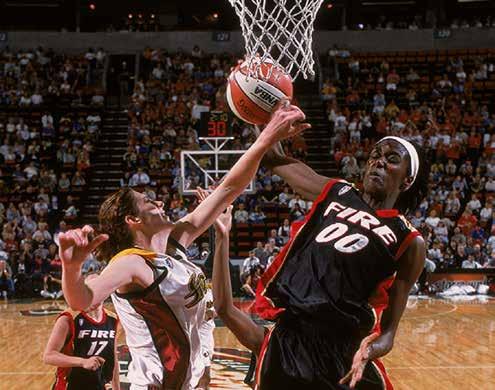

BY ED WALSH SPECIAL TO THE SGN

Valencia, Spain, is getting ready to host the 2026 Gay Games, and tourism boosters are already preparing to put the city’s best face forward, with the hopes of enticing some of the estimated 8,000-12,000 attendees to return again and again.
The Gay Games includes 33 venues, 22 of which are government-owned and all but a handful are in the city limits. Besides the competitions themselves, the games play host a number of social gatherings. The Gay Games Village, similar to the Olympic Village, will be located in the expansive, modern, and iconic Ciudad de las Artes y las Ciencias (City of Arts and Sciences) buildings.
For Queer visitors, the city has it all — from world-class beaches, nightlife, and restaurants to centuries-old culture and a rich history.
Historic city
With a population of nearly 800,000, Valencia is Spain’s third largest city, after Madrid and Barcelona. It has played a pivotal part in world history. It was in Valencia in 1488 when Christopher Columbus first approached Queen Isabella and King Ferdinand to ask for Spain’s backing to find a new route to Asia. Portugal had already
turned him down, but by 1492 the Spanish royals were more receptive to Columbus’s sales pitch. At that time, Spain was finally overcoming centuries of Muslim domination. Feeling more optimistic about their country’s future, Isabella and Ferdinand greenlighted Columbus’s famed journey.
Modern times saw the beautification of the city following the flood of 1957, which took at least 81 lives. The city decided to divert the river so it flowed outside of downtown. Almost 12 miles of the old riverbed were transformed into parkland, with the crown jewel being the aforementioned Ciudad de las Artes buildings, which look a little like the Sydney Opera House. The sprawling and stunning complex is made up of six unique buildings, including a hands-on science museum, a concert hall, and Europe’s largest aquarium. A little further down the riverbed, you will find the Gulliver playground, built to resemble the storybook character being held down by ropes. The kids get to play the Lilliputians as they climb and slide over him.
The historic center of Valencia used to be surrounded by a wall. Two massive, ornate entry gates remain and have become very popular tourist attractions. The Torres de Quart offers great views of the old city

and the new riverbed park. The other gate tower, Torres de Serranos, offers similar views, was used to hide and protect art during the Spanish Civil War. Both gates were sometimes used as jails; a bell on the side was used to signal when a prisoner escaped. Valencia’s main cathedral, Catedral de Valencia, has the so-called Holy Grail, a chalice that dates back to Jesus’s time that may have been used at the Last Supper. Jewels were added to the bottom of the cup, opulence wouldn’t have been characteristic of Jesus’s life as a humble carpenter. Just a short walk from the cathedral is the Iglesia de San Nicolás, sometimes called Spain’s Sistine Chapel, with its meticulously restored ceiling paintings.
Mercado Central, a nearly hundredyear-old indoor market in the heart of the old city, is jam-packed with stands selling locally produced and harvested fruit, vegetables, meat, and fish. It is the very traditional way the Spanish bought what they needed in the days before refrigeration, so freshness had to be a priority.
The Gay-popular Russafa neighborhood, adjacent to the historic old town, is packed with bars and restaurants. Some could be
considered Gay-friendly, while others are hetero-friendly. The bars and businesses come alive starting around 7 p.m. and many keep going well into the morning if they still have customers. The nearby main street, Gran Vía, hosts larger disco dance spaces.
Some of the more Gay-popular bars include La Bella de Cádiz, Franky Four Fingers, Comics, and La Boba y El Gato Rancio in Russafa; the cruise bar Homens (close to the central station), El Cafetín, and Trapezzio in El Carmen (downtown); and The Muse, the stop before Deseo 54, the popular weekend Gay disco that doesn’t open until 1 a.m. and keeps the party going until 7:30 a.m.
Gay-owned Café de Las Horas in Old Town is known for its striking, red Victorian decor. Try Valencia’s signature drink there, agua de Valencia, made with orange juice, cava, and sometimes gin. You will see piles of oranges all over the bar. Valencia oranges, by the way, are named after the city, which has adopted the fruit as one of its symbols. You will see it on buildings and signs throughout the region.
northern end of the Playa de la Mal-
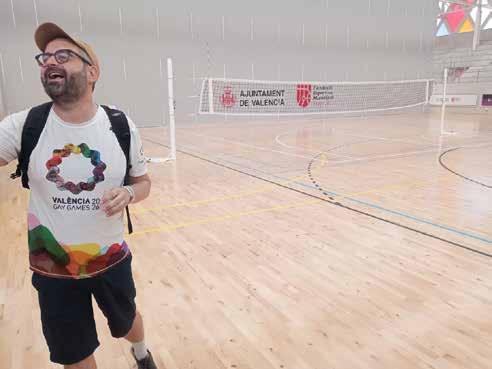
varrosa is the most popular of Valencia’s beaches overall. The main Gay beach, Playa de l’Arbre del Gos, is south of Valencia in the La Albufera region, between El Saler and Pinedo Beaches. It is clothing optional and frequented by men and women. Buses 14 and 15 go to Pinedo Beach; you can walk from there. Or the 25 bus stops at El Saler Beach on the other side. Look for a large abandoned chimney stack.
A good way to get the lay of the land is by doing a bicycle tour. Valencia is flat and has bike trails everywhere. A walking tour of downtown Valencia is also worth doing. A number of companies offer such tours; some are free and make money on tips.
Valencia is an affordable city compared to US standards. Spain is not a tipping country, and tax is usually included in the bill, so the price you see is what you will pay. You can get a light breakfast for $5 or lunch or dinner for less than $15. By the way, the Spanish generally eat a very light breakfast, sometimes toast with tomato sauce or olive oil. The biggest meal is a late lunch at around 2 or 3 p.m. Dinner seldom happens before 9 but is usually very light.
If you travel to Valencia between now and when the Gay Games start in June, you will literally see signs all over town boasting of its host city status. Valencia is sponsoring billboards announcing the competition. The city government also strongly supports the games, which they hope will be an economic boost.

If you plan to attend the games, the best time to make travel plans is now. The Gay Games run June 27 through July 4, 2026. June through August is the busiest time for tourism to Valencia. That’s when Europeans flock to the city to take advantage of warm, sunny, long days, when the sun doesn’t set until about 9:30 p.m. (and it doesn’t really get dark until about an hour after that).
Don’t rent a car. It’s not worth the hassle of traffic and finding a place to park. The city center is just an 18-minute ride on the Metro from the Valencia airport. Download the app for the city’s bike-sharing program (www.valenbisi.es) or plan to take public transit to get around. You can
tap your credit credit card to pay, or buy a tourist card ahead of time. Uber works in Valencia, but if you are coming to or from a major event, it could be more challenging to find one.
If you want to fly into Barcelona or Madrid and combine two cities in one trip, Valencia is about a 1.5-hour high speed
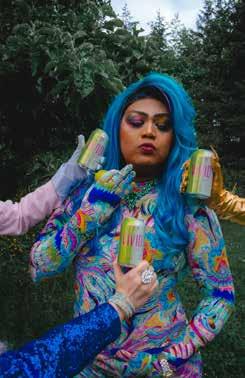
train ride from Madrid and 2.5 hours from Barcelona. Level Airlines, the sister company to Iberia Airlines, has some great deals flying into Barcelona from several cities in the US. If you can get a good deal with Level, it may be worth it to fly into Barcelona and take the train
21 20 19 SEPTEMBER









BY SARA MICHELLE FETTERS SGN STAFF WRITER
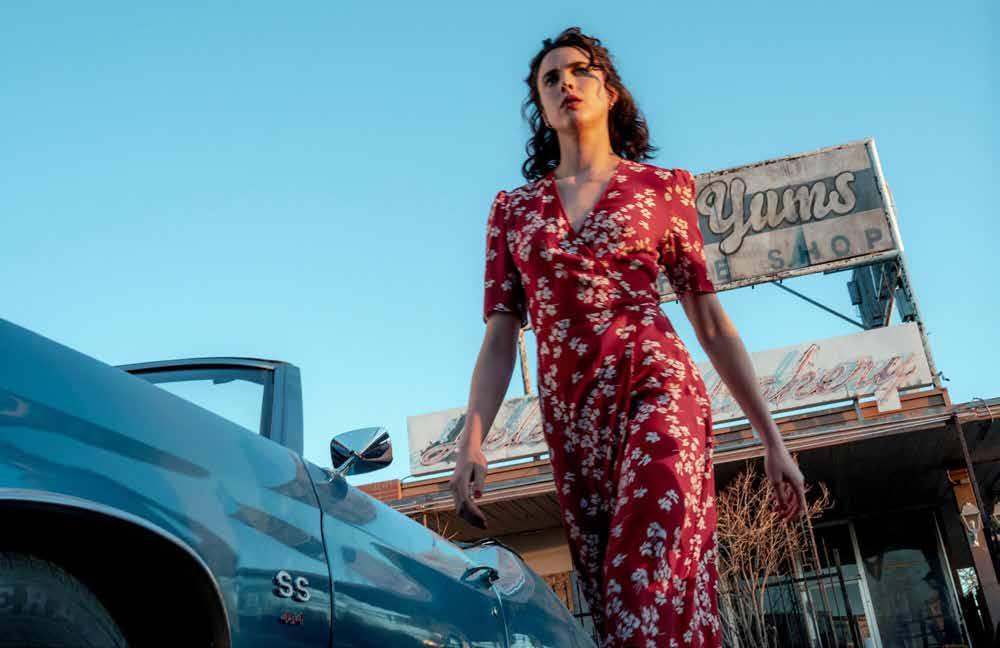
Ethan Coen and Tricia Cooke, the team behind Drive-Away Dolls, return with their second Lesbian black comedy starring Margaret Qualley in as many years, Honey Don’t! — a James M. Cain meets Dashiell Hammett neo noir (with a healthy dash of Lana and Lilly Wachowski’s Bound ) that belligerently refuses to follow narrative convention. It’s like The Big Sleep crossed with No Country for Old Men, only from a confidently Sapphic point of view and with a bleak, nihilistic mean streak.
This seems like the type of structurally dense private-detective fiction that will mystify viewers during its initial release and then age incredibly well over time. Think Arthur Penn’s Night Moves or Michael Mann’s Manhunter. The conversations are brief, pungent, and achingly genuine. Individual moments come at you like idiosyncratic sojourns into the surreal, only to grow in magnitude when the completed puzzle is revealed. It’s sleazy and virtuous at the same time, and — while I hope this won’t be the case — I suspect I’ll be in the minority in finding this latest blood-soaked confection to be delicious.
California small-town private investigator Honey O’Donahue (Qualley) is frustrated. A young woman who recently contacted her, worrying that she could be in danger, has turned up dead in a freakish automobile accident. While it doesn’t look like there was any foul play, the PI remains perplexed. What was it this lady wanted? What made her so afraid? Having no idea if she will uncover any wrongdoing, Honey is compelled to investigate anyhow.
While there’s nothing strange about any of that, it’s where Coen and Cooke take things that is so compelling. Honey’s sister Heidi (Kristen Connolly) is mom to several children, the eldest of whom, Corinne (Talia Ryder), is in an abusive relationship. A local pastor, the charming Reverend Drew Devlin (Chris Evans), is more cult leader than bona fide man of the cloth. His church also doubles as a front for a French narcotics ring, and their local representa-
tive (Lera Abova) isn’t fond of Devlin’s decision-making skills. On top of all of this, Honey is having what was intended to be a one-night stand with policewoman MG Falcone (Aubrey Plaza). But their sexual escapades transpire over multiple nights, so maybe their relationship will last longer than anticipated.
All the subplots connect, but rarely in a predictable way. Loose ends aren’t accidental but by design. Honey’s investigation may lead to some semblance of the truth, but not the entirety, and I love that about the film. This is a character study of a woman with agency and determination who does what she thinks is right, damn the consequences. She knows she’s flawed and has issues. She also understands that’s exactly what makes her human. Honey is her own woman, and that’s why she’s unforgettable.
The lackadaisical pacing is an issue. This thriller runs less than 90 minutes, but it feels longer, especially during the early
portions of the third act. The sudden shifts in tone, while a Coen trademark (think Fargo or Burn After Reading), can also be jarring. It’s admittedly hard not to wonder how much more seamless those crazily violent transitions from comedy to drama to suspense to tragedy and back to comedy might have been had Ethan’s brother Joel been around to lend some assistance.
Part of me thinks I’m so in the bag for Honey Don’t! primarily due to its visual, structural, and storytelling reverence for classic noirs of the 1940s and ’50s, notably Out of the Past, The Third Man, and Touch of Evil. But there’s so much more to it than that. Coen pays homage to the past but also looks fearlessly into the future. Director of photography Ari Wegner’s camera placements are a thing of unnerving beauty. There’s nothing regurgitative about any of this.
And that’s awesome. Nothing is off limits in Coen and Cooke’s world. There are bursts of hard-hitting honesty that enrap-
tured my soul, like when Honey and MG share a postcoital smoke and word-vomit truisms that a less ambitious picture would have avoided. Sexuality is celebrated, not something to be hidden or ashamed of. Death is random, ugly, and, even when morbidly humorous, deliberately unglamorous. It’s a-okay to mock organized religion, especially when it is perverted, consumerist, and blatantly hypocritical.
For me, it is the ending that vaults Honey Don’t! into the stratosphere. Things work out in the most peculiar way possible, and while I’m obviously not going to reveal why that is, know that it’s priceless. Coen utilizes Qualley’s facial expressions, verbal dexterity, and physical ingenuity to perfection. In doing so, he contextualizes all of these absurdist events with rapturous verisimilitude. It’s a ray of light amid all the sun-drenched, California desert, daytime darkness, and the burn it leaves behind is glorious.

BY SARA MICHELLE FETTERS
SGN STAFF WRITER
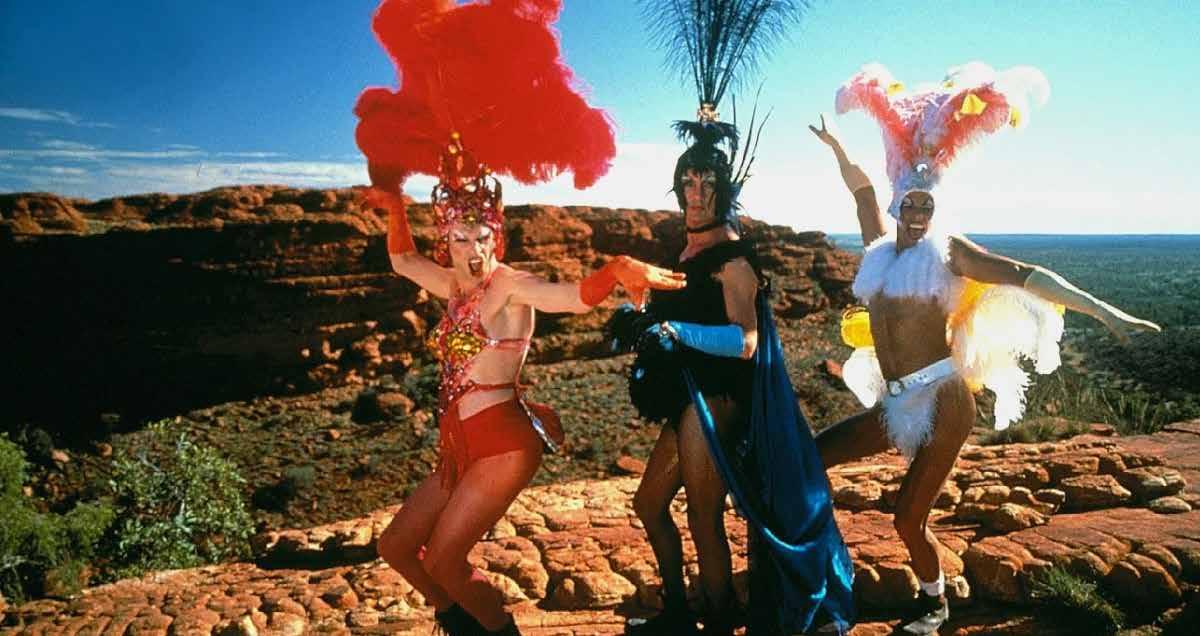
Like many from my generation, my first encounter with Terence Stamp came in his brief appearance in 1978’s Superman as the powerful General Zod. In less than five minutes, he managed to terrify me right to the core. Each glare, each proud shrug of the shoulders, the way he would straighten an already vertical, iron-clad back when his name was mentioned, his thunderous assertions of dominance seconds before his imprisonment in the Phantom Zone — it was all amazing. No one will ever portray this character with as much intimidation, confidence, anger, and authority as he did.
As I got older, discovering Stamp’s chameleon-like genius in such a rich, tonally varied array of motion pictures was an obvious delight. From his Academy Award–nominated work in the emotionally gut-wrenching swashbuckler Billy Budd from 1962 to his single-minded, ferociously feral magnificence in 1999’s The Limey, there’s nothing he couldn’t do. Comedy? Check him out in Bowfinger, also from 1999, where he stands toe-totoe with Steve Martin and Eddie Murphy. Drama? His Sergeant Troy in 1967’s Far from the Madding Crowd is an eviscerat-
ing tour de force. Something esoteric or off the beaten path? From The Collector, Modesty Blaise, and Teorama in the 1960s to A Season in Hell and The Divine Nymph in the 1970s to The Hit, The Company of Wolves, and Link in the 1980s, he was up for every challenge.
Then came Stephan Elliott’s Aussie cult comedy classic The Adventures of Priscilla, Queen of the Desert in 1994. Full disclosure: This was my second year at the University of Washington, and it was a disaster. I was falling apart, utterly unable to deal with my gender identity issues. I started cutting myself off from my friends and family. I also stopped studying. I flunked out of school.
I won’t say The Adventures of Priscilla changed my life, but it certainly helped me put things into a healthier perspective. The primary reason for that was Stamp’s spellbinding performance as fiftysomething drag queen Bernadette. I was flabbergasted.
Not because Stamp couldn’t do big, broad comedy or portray a proudly Queer character with such confident authenticity. It was more how he so effortlessly seemed to tap into something primal and intimate,

and yet still so hauntingly universal. He helped me see my own life and where it was heading in a different light. While I didn’t make any immediate changes, Bernadette’s determination to be her true self and damn the outside world’s reactions convinced me to at least reach out for help.
To find a therapist. To refocus on writing. To give the UW a second try.
This is the magic of cinema. It holds a mirror up to the world and shows you things in an unexpected light. It is also a perfect example of the mark a truly transcendent performance can leave on the cultural landscape. As great as Hugo Weaving and Guy Pearce were in the film, Stamp’s Bernadette is the character we’re still talking about with hushed reverence three decades later. Not only did she have the best lines (“Why don’t you just light your tampon and blow your box apart?” “That’s just what this country needs: a cock in a frock on a rock.” “I can only fight because I’ve learnt to. Being a man one day and a woman the next isn’t an easy thing to do.”), her journey is the one filled with the most pathos, pain, joy, and, most importantly, love.
Stamp continued to give incredible perfor-
mances after this one, most recently as the Silver-Haired Gentleman in Edgar Wright’s Last Night in Soho. Personally, I’m particularly fond of his twinkly-eyed nimbleness in 2011’s The Adjustment Bureau and his determinedly tragic stoicism in 2008’s Valkyrie. But he’s great in everything, even the crummy stuff, and it’s no small thing to be able to bring one’s A game even when the material is undeniably subpar.
But nothing Stamp did means as much to me as Bernadette. The Adventures of Priscilla, Queen of the Desert has withstood the test of time. Not only is it a key member of the Queer cinematic canon, it also remains a powerful testament to found families, gender and cultural diversity, and the universal importance of empathy, understanding, and love. Stamp allowed Bernadette to powerfully give voice to the type of person we sadly do not hear from in as big, broad, and boisterous a way as we should. We need her now more than ever.
This is Terence Stamp’s legacy. This is what makes him and his giant catalog of remarkable performances immortal.
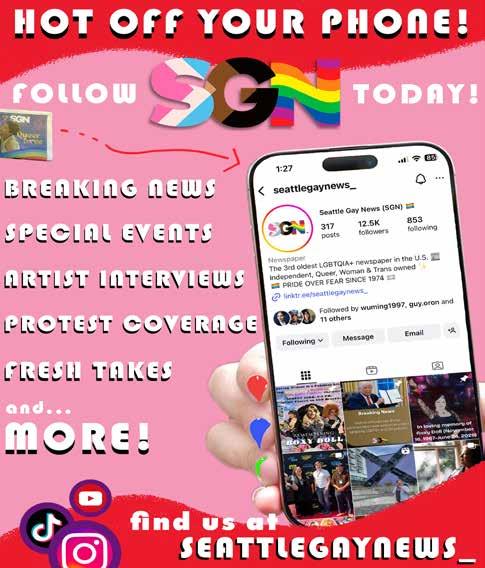




BY SARA MICHELLE FETTERS
SGN STAFF WRITER
The last time a Red Sonja adaptation hit theaters was in the infamous yet still fascinatingly rewatchable 1985 effort starring Brigitte Nielsen in the title role and Arnold Schwarzenegger as her determined compatriot Kalidor. Since then, while there’s been constant talk of a redo, it’s taken four full decades to finally see the light of day, after veteran action director M.J. Basset and screenwriter Tasha Huo finally got the assignment.
Was it worth the wait for a new take on the character, originally created by writer Roy Thomas and artist Barry WindsorSmith for Marvel Comics in 1973 and inspired by author Robert E. Howard (who, for the record, did not have his version of Sonja ever interact with Conan the Barbarian)? I’m having trouble determining exactly whom I would recommend it to. Messy, overly convoluted, made on a noticeably shoestring budget, and at times unintentionally hilarious, there’s definitely plenty here that does not work.
Yet, there’s still plenty about this ambitious, not-so-subtly Queer, wannabe Hyborian Age blockbuster that I got a kick out of. Bassett makes the most of very little, and while the seams do show through (much like the filmmaker’s last Howard-inspired, mid-budget — and admittedly far superior — epic, 2009’s Solomon Kane), there is a confident vision fueling this adventure. Even when the picture stalls (which is often), my interest remained constant. I was eager to discover where things were going next, and that’s a positive I refuse to ignore.
For less than two hours of story, there’s a freakish amount of plot to dig through. Everything revolves around Hyrkanian Sonja (Matilda Lutz), one of her clan’s few survivors after a marauding horde wiped their village out when she was a child. She’s raised herself in a mysterious forest in kinship with the mystical creatures and forces who reside there. But after hunters controlled by the mad King Dragan (Robert Sheehan) invade her abode and slaughter a pride of animals for sport, Sonja ventures into the world beyond the woods to exact her vengeance.
Basset and Huo pull from Gladiator, Conan the Barbarian, Braveheart, Princess Mononoke, The Lord of the Rings trilogy, and so many additional fantastical sources that it’s impossible to keep track of them all. Sonja ends up having to fight for her life in a gladiatorial arena, stages a bloody prison break, leads an insurrection, makes nice with a cyclops, encounters a secretive glowing power source, searches for her kin back in the forest, and encounters mystical forces that help her transform into the hero she was born to be.
As narratively standard as that is, it’s a lot to keep track of even so. While Basset does her best to maintain coherence and cohesion, her success rate is truly only a wee bit better than fifty-fifty at best, especially during the overstuffed second half. Budget constraints also come into play, and what is built up to be this massive climactic battle between two powerful forces suddenly mutates into a solo assault inside a guarded compound, with the majority of the conflict happening out of sight, behind closed wooden doors.
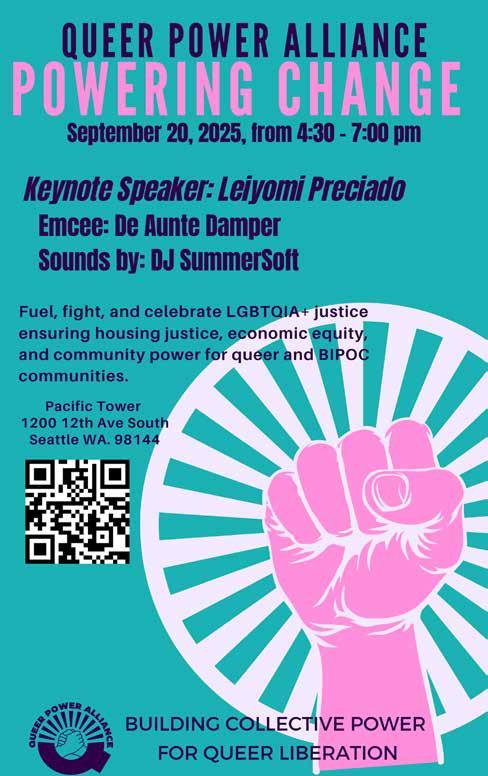

Still, Basset stages some of the better action sequences of 2025. The precise fluidity of the camerawork and the meticulous intimacy of the editing supply aggressive urgency to the proceedings, as does the thunderous brutality of the fight choreography. Lutz, while not exactly as intimidating as Nielsen was in the 1985 version, nevertheless brings a seething intensity that’s both similar to her mesmeric turn in Coralie Fargeat’s magnificent Revenge yet also its own ferociously karmic, predatory beast. Her resolute stare pierces the screen, and Basset has no qualms utilizing this to the film’s advantage.
But none of this — the action, the creative makeup effects, how the seemed to be loopily referencing Hayao Miyazaki, John Milius, Ursula K. Le Guin, Jules Bass, and Arthur Rankin Jr. all at once — is what I found most fascinating about Red Sonja. This venture into the Hyborian Age embraces its nonconformist, internalized aspects. While not exactly The Matrix, it’s impossible not to miss all the Trans-inclu-
sionary subtext, especially the dual paths both hero and villain are on. I was floored. Genders blur and identities are continually in flux. Masculine behemoths proudly showcase explicitly feminine traits. Womanly warriors fearlessly let out manly yells of anger as they disembowel their enemies. Everything builds to a biblical sequence of sacrifice, death, and rebirth, and it is in this moment of destruction and resurrection that a measure of peace is found, giving Basset’s violent spectacle a layer of courageous profundity I hadn’t anticipated. I can’t make the case that Basset’s Red Sonja meets with complete success. It’s frequently let down by its budget and, because of this, it does not rise to its aspirational intent. But the film embraces its comic book antics wholeheartedly, has several rousing set pieces, and is so unabashedly weird that it cannot be dismissed. It all makes this latest journey a trip I’m happy to have taken: a bloody adventure of identity, vengeance, and transformation — and a rip-roaring good time.

BY FRANK GAIMARI
Reprinted with permission from Stonewall News Northwest (https://www.stonewallnews.net)
Nestled in the heart of West Seattle, Brent Archer has built a life and a career as dynamic and vibrant as the region he calls home. Brent’s inspiring journey from engineering student to acclaimed author of Gay contemporary romance exemplifies the transformative power of pursuing passions and embracing reinvention.
Originally from Spokane, Washington, Brent’s story continues in Seattle, where he initially pursued a degree in electrical engineering at the University of Washington. However, it didn’t take long for him to realize that his true interests lay elsewhere. This epiphany led him to switch his focus to international studies with a minor in history, an academic path that would later influence his storytelling.
After graduation, Brent’s life took on a multifaceted rhythm, balancing accounting jobs with a budding career in musical theater and dance. By the age of 30, he earned a certificate in accounting and became the financial controller of a nonprofit arts organization. Despite professional success, the creative spark of writing never faded.
It wasn’t until 2012 that Brent decided to share his writing with the world. A visit to his cousin, Delilah Devlin, an accomplished author, proved to be a pivotal moment. Inspired by Delilah and her sister, Elle James, another successful writer, Brent took a leap of faith and submitted his first story, Dear Bryan. It was quickly accepted for publication, marking the beginning of a new chapter in his life. With unwavering support from his husband and family, Brent embraced his calling as an author, crafting heartfelt stories that have resonated with readers worldwide.
Travel has played a significant role in Brent’s creative process. From Seattle’s cozy coffee shops to the distant landscapes of Iceland, New Zealand, and France, his adventures have infused his stories with rich settings and authentic characters. Having visited most of the United States, Canada, and several countries abroad, Brent’s
goal is to explore every continent and US state. These experiences not only inspire his work but also deepen the emotional landscapes of his novels. When not writing or traveling, Brent often works at a local wine shop, playfully calling it “research” for his next project.
As an author in the LGBTQ+ romance genre, Brent has faced challenges but remains dedicated to authentic storytelling. His books, such as Blaze of Cortez and Throuple Honey, along with a story in the recently published Own Voices anthology Romance Is a Drag, resonate with readers for their heartfelt narratives, vibrant characters, and universal themes of love and acceptance. Whether creating standalone novels or building upon his series, Brent’s remarkable body of work is a testament to the power of pursuing one’s passions and embracing the unpredictable journey of life. Over lunch, I had the pleasure of getting to know Brent better, a man whose books I’ve long admired. As we talked, I discovered not only his sharp insights but also his genuine compassion, qualities that have since turned him from an admired author to a valued friend. Here are the highlights of our conversation.
Frank Gaimari: What inspired you to transition from accounting to writing romance novels?
Brent Archer: Writing started at an early age for me. I entered a young writers’ contest in fourth grade in Spokane. I still have the little, blue-covered “book” I called Space Specialties. In eighth grade, I attended the Young Writers’ Conference and read a chapter from a time travel adventure I had started. We were allotted time to read, but when mine was up, the group asked if I could continue reading to finish the chapter for them.
Throughout high school, I wrote poetry and what is now known as fan fiction for Doctor Who, including two complete screenplays. Nothing was ever submitted for publication, but I loved writing them. At the University of Washington, my lecture notes often had artwork or poems written in

the margins. Once I embraced theater and dance, my writing took a long hiatus. Fast forward 15 years. I have two first cousins who are successful romance writers: sisters Delilah Devlin and Elle James. When our grandmother moved from Spokane to Arkansas after my grandfather died, I would write letters to her. Delilah pulled me aside one day when I was visiting and said, “We know you can write,” referring to the letters I sent to Grandma at least once a week. She showed me a “Calls for Submission” board online and told me to pick one and write a short story.
I wrote Dear Bryan and submitted it to an anthology. It was accepted, and I was hooked, so I kept writing. Despite my following three or four stories not being accepted, I pursued a writing career while maintaining my day job in accounting. When I told Elle that Dear Bryan had been accepted, she said, “Welcome to the dark side!”
FG: How do your travels influence the settings and characters in your books?
BA: Travel is an immense love and passion in my life. My eyes were opened to the world when I took my first trip overseas in 1992 with the dance ensemble. The travel bug bit me hard.
In my writing, I strive to make my characters well-rounded and curious about the world, whether they are that way from the start or evolve through the experiences they encounter. My first series of books was an
adventure romance that began in Seattle but evolved into a treasure hunt throughout Europe. Memories of Coromandel, in my Rain City Tales series, is primarily set in Auckland, New Zealand. It mirrored, in many ways, the trip I took to New Zealand in 2009.
This summer and autumn, I’ll be in Europe and plan to write a story set in the UK while I’m there. Dear Bryan, my first romance short story was also set primarily in England.
FG: Can you share the story behind your first published work, Dear Bryan?
BA: During my time at the University of Washington, I dated someone named Bryan for just under a year. When he traveled to England for the spring and summer quarters, we stayed in touch by exchanging postcards and letters. That correspondence later became the inspiration for Dear Bryan Shortly before writing the story, I revisited those letters and thought it would be a compelling creative choice to incorporate postcards at the start of most major scenes. The editor appreciated this approach, and the story was accepted.
FG: What challenges have you faced as an author in the LGBTQ+ romance genre?
BA: Finding my audience has been one of the biggest challenges I’ve faced. LGBTQ+ authors face the added burden of being a
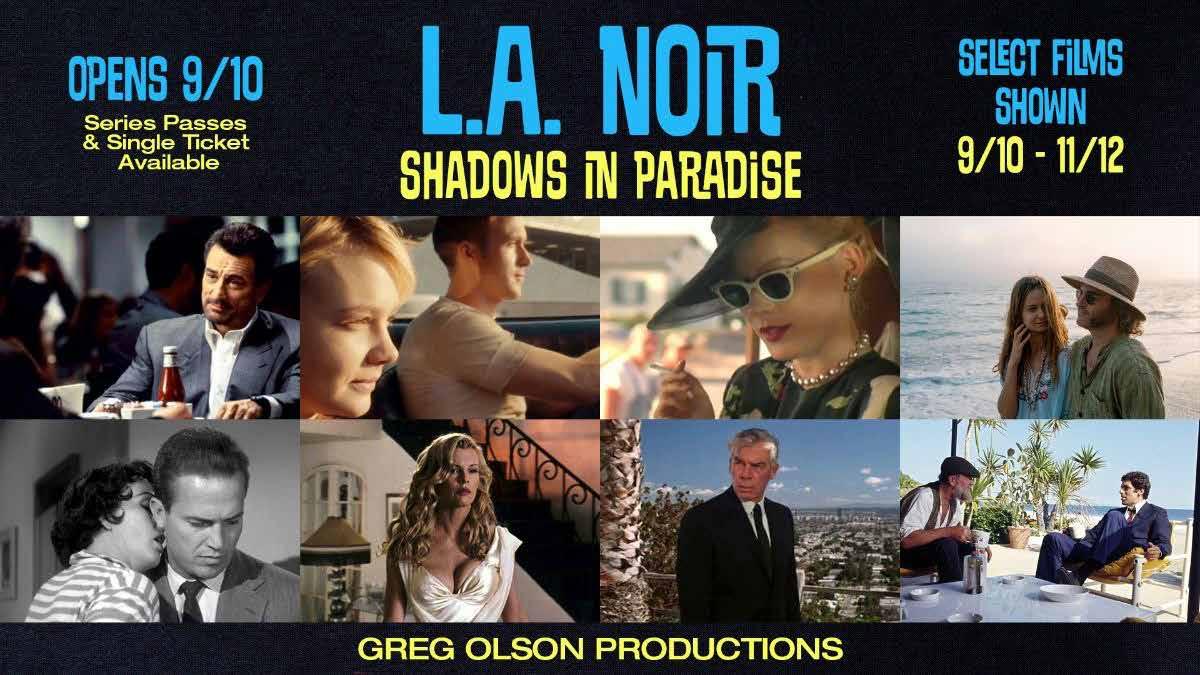
“sensitive issue” when it comes to advertising, so all the workshops touting foolproof marketing ideas and methods don’t necessarily translate for us. I also find that many readers are more likely to purchase LGBTQ+ romances if the author’s name is female.
Though I’m happy for anyone to read my work, I gear my writing to Gay men. We’ve had a difficult time finding books that realistically portray our lives in works of fiction, and, consequently, my stories aren’t necessarily heteronormative. I endeavor to write about my boys as realistically as possible. This doesn’t always translate for readers who are used to a specific romance formula. My goal is to reach Gay men and show that our stories of our authentic selves are just as deserving of a happily ever after as those characters in formula-driven romances.
FG: How do you balance your day job at the wine shop with your writing career?
BA: I started writing while working as a financial controller for a nonprofit arts organization. Despite working 40-60 hours a week, I managed to carve out time to write, either during my lunch breaks or immediately after work. I’d take the bus back to my neighborhood, stop at my local pub on the way home, and write for an hour with a glass of wine.
After changing jobs, I continued dedicating my lunch breaks to writing. I’d walk several blocks from my office to my favorite lunch spot, order pretty much the same
thing every day, and write, usually managing to get between 500 and 700 words per session.
During the pandemic, I was laid off. Instead of working, I spent the time I’d usually be at my computer writing, establishing sprinting groups with other authors over Zoom. I also took on another job: caring for my elderly parents.
Now, I juggle writing with family caregiving, but I’ve managed to keep up my Zoom writing sprints. I write for at least an hour, five days a week.
FG: Which of your characters do you relate to the most, and why?
BA: Clark Adamson shares many characteristics and thought processes with me. He’s an accountant, works for a nonprofit, [and] is a do-gooder, loyal, and attuned to how others feel. Clark is introduced in Past Secrets Present Danger, has his own love story in The Wedding Weekend, appears in Mitch’s Men, and plays an integral role in encouraging his cousin to come out and take a chance on a relationship in Blaze of Cortez
I love his story arc and the way he helps others while maintaining his sense of humor. He’s also a bit mischievous, and if you ask anyone I’ve done theater shows with about my backstage antics, they’ll tell you I have a playful streak of my own!
FG: What advice would you give to aspiring authors looking to self-publish?
BA: I switched to self-publishing after my first series and a few novellas weren’t selling, and I was having challenges with royalties. It’s difficult, don’t get me wrong, but there’s a lot more freedom and control. I’m able to choose my titles, my covers, and retain control over artistic choices and marketing. There are numerous options for all aspects of book production. Don’t be afraid to try everything and see what works for you. Most importantly, spend each day writing if possible. You can’t edit a blank page.
FG: Do you have any upcoming book releases? If so, could you share some details about them?
BA: I released two novels last year, Throuple Honey and Blaze of Cortez. My next release will be in the fall as part of a Queer anthology edited by author Shane Morton. Earlier this year, I had a story featured in Romance Is a Drag: A Queer Anthology #1, and the upcoming release will be the third volume in his Own Voices anthology series.
The new story will be a holiday tale titled Boston Italian Christmas, featuring a nurse and a veteran. It will also be tied into the story from the first volume. Although I’m not yet certain of the exact release date, it is expected to be available during the 2025 holiday season.
I’m also hoping to release the second story in my Black Rock Cult series this winter or spring. Titled Hiding Hayden, it follows a small-town police officer who protects and hides a newspaper reporter from
a local cult.
FG: If you could cowrite a book with any author, living or dead, who would it be and why?
BA: Madeleine L’Engle, if the story is romance or literature. Clive Cussler, if it’s an action-packed adventure. Both authors were inspirations for me growing up, especially during my teen years. I still return to L’Engle’s books during difficult times in my life. Her stories provided me with hope and healing during some of my lowest moments. On the other hand, Cussler’s books captured my imagination and inspired me to pursue a career in oceanography at university.
Unfortunately, I get seasick, and the science weed-out classes ended that dream. Instead, I earned a degree in international studies! Still, I feel a deep connection to the sea, and I’ll always love a good adventure novel.
Brent Archer’s life and career are a testament to creativity, resilience, and the courage to pursue one’s dreams. From his roots in the Pacific Northwest to his adventures across the globe, Brent’s stories reflect the beauty and complexity of the human experience. Whether you’re a fan of romance, drama, or compelling storytelling, Archer’s works are a must-read. Explore his books on Amazon or visit his website (https://brentarcher.net/publications/) to learn more.
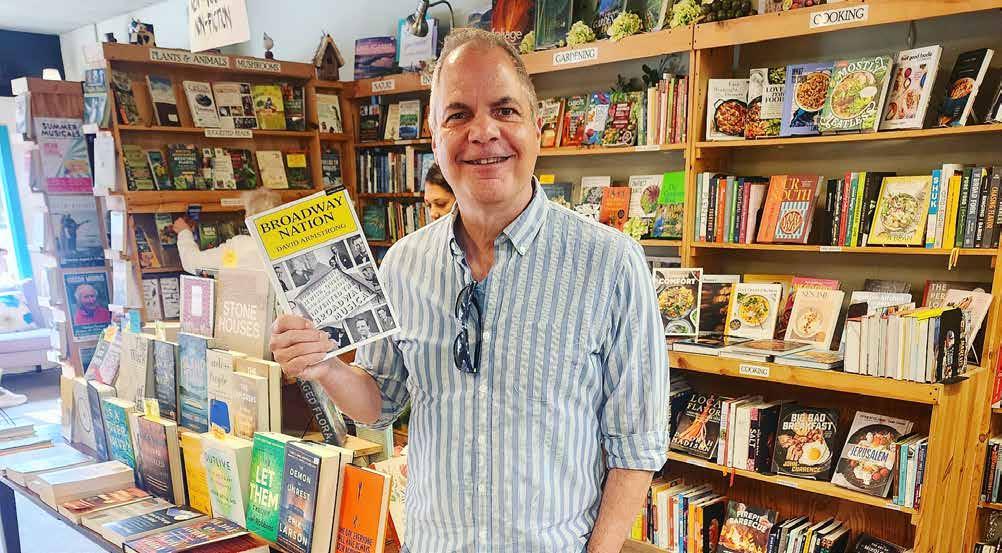
BY PERRIS LARSON
BROADWAY NATION: HOW IMMIGRANT, JEWISH, QUEER, AND BLACK ARTISTS INVENTED THE BROADWAY MUSICAL
DAVID ARMSTRONG
© 2025 Bloomsbury
$31.45
456 pages
For 18 years, David Armstrong committed his life to the 5th Avenue Theatre as the producing artistic director. When he decided to step down from his role in 2018, he was approached by people in the school of drama at the University of Washington to teach a class on Broadway history.
Thus, the theme of “Broadway Nation” was born. Taking the information from his classes, as well as his successful podcast series by the same name, Armstrong dedicated two years to researching and writing the history of Broadway that isn’t at the forefront.
“I didn’t invent any of it; there are pieces of it all over the place,” Armstrong said.
“There are books and documentaries about the Jewish influence on Broadway musicals. There are things about the Gay influence on the Broadway musicals. What no one has done before is bring all those threads together to make it one cohesive story.”
One of the major points in the book is that you cannot tell the story of the Broadway musical without the story of America. They are tied together so plainly in musicals like Hamilton and Wicked, just to name a couple.
According to Armstrong, the Broadway musical has three themes: transgressive women, equity and social justice, and the forming of community. Wicked happens to have all three.
But aside from highlighting how these productions reflect real-life issues and stories, the book highlights many Queer artists in the Broadway scene that most people
have never even heard of, as well as how, over the decades, Queer artists on Broadway were able to find each other, and contribute to its success even in the present day.
“The Broadway musical has been handed down from one person to the next, almost like a medieval craft,” Armstrong said.
The dynamic duo of Charles Dillingham and Charles Frohman were Broadway producers at the turn of the century, with successful shows like Peter Pan and The Importance of Being Ernest, both written by Queer men. At the time, according to Armstrong, there was an air of openness among the theater community about the relationship between Dillingham and Frohman.
Peggy Clark was a designer of stage lighting in the early 1940s, working on more than 60 Broadway productions. Tharron Musser was also a lighting designer on more than 150 Broadway shows. Both Queer women in a male-dominated field,
they turned lighting design into an art form throughout their careers.
Hassard Short, the master magician of Broadway, originally discovered by Dillingham, became the first great stager of musical theater. Working on 50 shows throughout the 1920s and 1950s, Short was the first Gay director on Broadway.
There are more stories, of course, and Armstrong goes on to explain how events in American history have always impacted Broadway in some way, especially how the Lavender Scare during the McCarthy era put many theater careers for Queer people in jeopardy.
“My job was to weave it all together in the narrative,” Armstrong said.
The book is available at most bookstores in hardback, paperback, and e-book formats, but it is strongly recommended to buy it directly from Bloomsbury Publishing.


Denny Blaine Labor Day Nude-In Protest
Date: Monday, September 1
Time: 3-6 p.m.
Venue: Denny Blaine Park, 200 Lake Washington Blvd E, Seattle, WA
Denny Blaine Park Upper Lawn Protest to keep Denny-Blaine Park 100% clothing optional! Be nude in body or in spirit! There will be a potluck, art, music, and best of all, COMMUNITY!
Pride: The Ric Weiland Collection
Date: Monday, September 1-1
Time: 10 a.m.-5 p.m.
Venue: Museum of History and Industry, 860 Terry Ave N, Seattle, Seattle, WA
Admissions: $0.00 - $25.00
In observance of Pride month and the 50th Anniversary of Microsoft, join MOHAI to explore the collection of Ric Weiland, Microsoft's employee No. 2.
GAME NIGHT
Date: Tuesday, September 2-23
Time: 6-10 p.m.
Venue: Queer Bar, 1518 11th Ave, Seattle, WA
Join us for GAME NIGHT every Tuesday! We'll be serving up gaggy HH specials all night long, tasty food pop-ups, cult classics on the TVs, Beer Pong, and plenty of seating available for your and your squirrel friends to saddle up to the bar, a booth, or table with whatever board or card games you want to bring! BYOG, 6 PM - Late
Bingo, B*tch!
Date: Saturday, September 6
Time: 3-8 p.m.
Venue: The Cloud Room, 1424 11th Ave Apt 203, Seattle, WA
Hosted in partnership with The Stranger: SUBSCRIBE HERE Buckle up because it's time for Bingo, B*tch!!! Upon arrival, you'll get a custom bingo card full of wild prompts, spontaneous mini-missions, and bite-sized activities that'll take you to every corner of Chophouse Row. Complete a bingo line to earn your shot at one of five epic prizes; go for the blackout and you'll be in the running for a major grand prize. * Winners will be chosen by raffle and announced on Monday, September 8th. No need to be present to win! What to expect: Rotating DJs on the Ghost Cabin Stage Tooth gems, mini flash tattoos & vintage clothing pop-ups Drag queens serving face, surprise performances, and pure entertainment Exclusive menu items, dining discounts, and a pop-up bubbles bar Insta-worthy moments to say goodbye to summer and hello to fall Capitol Hill coming together to party, connect, and celebrate our community This isn't your mom's market day-and that's the point. Whether
you're here to win a prize, watch some drag, explore Chophouse Row, score a deal, or just to flirt with fall, we've got your Saturday sorted. Free to attend, fun to win, and made for the people who get Capitol Hill. See you there, b*tch!
Rowan's Request Line
Date: Sunday, September 7
Time: 9-11:30 p.m.
Venue: Queer Bar, 1518 11th Ave, Seattle, WA
Stop ghosting your inner diva - Rowan's Request Line is live and waiting! Sunday 9/07 join us for a no-holds-barred live telethon for Seattle's sultry showgirl @ therowanruthless gender-affirming care! Hosted by the hilarious and very nice lady @heyjanedont with performances by @kochinarude (SF) @hoochiepapa @pwillowburlesque @moscatosky @ pupusaqueen @fabbbbbiii & beau_degas ! 9 PM - Cover at door.
Figure It Out - Queer Figure Drawing
Date: Tuesday, September 9
Time: 6-10 p.m.
Venue: Vermillion Art Gallery & Bar, 1508 11th Ave, Seattle, WA
Monthly Queer Figure Drawing, every second Tuesday. $15 suggested donation paid to the model. All skill levels welcome. More info here:
Sex Trivia @ Stoup Capitol Hill
Date: Wednesday, September 10
Time: 9 p.m.
Venue: Stoup Brewing - Capitol Hill 1158 Broadway, Stoup Brewing Admissions: $12.51
Celebrate three years of queer Sex Trivia and raise money for the LGBTQ+ Center with this new round of questions!
WEgsba's September Gathering - an informal meetup at the new location of Nook & Cranny Books.
Date: Wednesday, September 10
Time: 6:30-8 p.m.
Venue: Nook & Cranny, 5637 University Way NE, Seattle, WA
It has been so great to meet in person...that we're going to do it again, this time on the north side and much closer in. On Wednesday September 10 @6:30-8:00pm (after the store closes), we'll meet at the new location of Nook & Cranny Books in University Heights (they are a member of GSBA). WEgsba will serve light snacks and beverages. If you'd like a more substantial meal, feel free to bring your own food (ready to eat, along with utensils). [Note: If possible RSVP by email or text 720-352-2434 so we know how many snacks and beverages to bring.]
San Cha | Inebria Me
Date: Thursday, September 11-13
Time: 8 p.m.
Venue: On the Boards, 100 West Roy Street, Seattle, WA
Admissions: $1.00 - $265.00
Inebria Me is a new, experimental opera by acclaimed LA-based musician and performance artist San Cha that queers cisgender and heteronormative tropes of telenovela and celebrates the liberating power of ascendant relationships. Led by a visionary bicoastal queer-of-color creative team, Inebria Me's live sound score of ranchera, cumbia, punk, classical, and electro merges with bold vocal performances and innovative theatrical designs to create a powerful political and poetic statement for opera's modern stage.
Benefit for Alliance Advocates
Planned Parenthood
Date: Saturday, September 13
Time: 7 p.m.
Venue: The Royal Room, 5000 Rainier Ave South, Seattle, WA
A Musical Celebration in Support of Reproductive Health, Choice and Justice! Benefit for Alliance Advocates of Planned Parenthood Washington. Saturday September 13th
7:00 PM - 11:00 PM
With Performances By: Horse and Tiger (members of the True Loves)
Carla Torgerson
Mettle Lark
K-Kollective! (members of Last Minute Maybes & Gretta Harley)
Liberty Strikes
Sheryl Wiser
Doors 6:00pm, show 7:00pm. Tickets $30 advance, $35 doors. All ages until 10pm!
Trans Emo Showcase: Worms In Dirt, Overripe, Doll Sceme, Mikes Emo Band
Date: Saturday, September 13
Time: 5 p.m.
Venue: Chop Suey, 1325 E Madison St, Seattle, WA
$ 12.00 / Age 21 And Up
Chop Suey Presents: Trans Emo Showcase: Worms In Dirt, Overripe, Doll Scheme, Mikes Emo Bandon Saturday, September 13th
Indigenous Voices - Coast Salish
Carving Demos and Teachings
Date: Tuesday, September 16
Time: 12-1 p.m.
Venue: City Hall Park
450 3rd Ave, Seattle, WA
Admissions: Free
Jimmy Price from Port Gamble S'Klallam brings a program of Coast Salish Carving Demos and Teac hings.
For more events visit
Date: Thursday, September 18
Time: 10-11 p.m.
Venue: Queer Bar, 1518 11th Ave, Seattle, WA 3rd Thursdays catch MOTHERSHIP Join our All Star @irenethealien on a gaseous & gaggy ride through the gaylaxy with @moscatosky @therowanruthless @ fabbbbbiii and special guests! Stick around after the rapture for Space House a dance party featuring house, disco, and nu-funk with @essexthedj at 11 PM. 8 PM Fresh Meat by @rubymimosa 10 PM Mothership 11 PM Space House
Trans Art program series at the Lake City Library
Date: Thursday, September 18
Time: 5:30pm-7:00pm
Venue: Lake City BranchThe Seattle Public Library 12501 28th Ave NE, Seattle, WA
Vaquero Azul presents Trans and Meesoamerican Icons Watercolor Class. Reoccuring art program series every Thursday scheduled though Oct. 23
David Archuleta w/ Alexandra John Date: Tuesday, September 23
Time: 8 p.m.
Venue: Tractor, 5213 Ballard Avenue NW, Seattle, WA CRME BRULE MEET & GREET EXPERIENCE (GA)One GA standing ticket with early entry, official meet & greet with David Archuleta including one photo, autographed VIP exclusive photo print, VIP-Exclusive Merchandise Item, VIP laminate & lanyard, crowd-free tour merch shopping before public doors, and onsite perks such as VIP check-in, dedicated VIP Host, and a priority lane into the venue
Hokus Pokus Live! Starring Ginger Minj, Jujubee, and Sapphira Cristal Date: Monday, September 29
Time: 8 p.m.
Venue: Neptune Theatre, 1303 NE 45th St, Seattle, WA
Ages 13+ Recommended for some foul language The Neptune is located at 1303 NE 45th Street in Seattle's University District. All ages show, bar with valid photo I.D. There is an overall 8 ticket limit per patron. Patrons exceeding the ticket limit will have their orders canceled at the venue's discretion. All sales are final. No refunds or exchanges. Mobile barcodes delayed until 4 days prior to event. Venue reserves the right to change delivery methods. Unless otherwise noted, each person must have a ticket regardless of age. No babies in arms. No Elevator. Ramps only to the balcony level.
